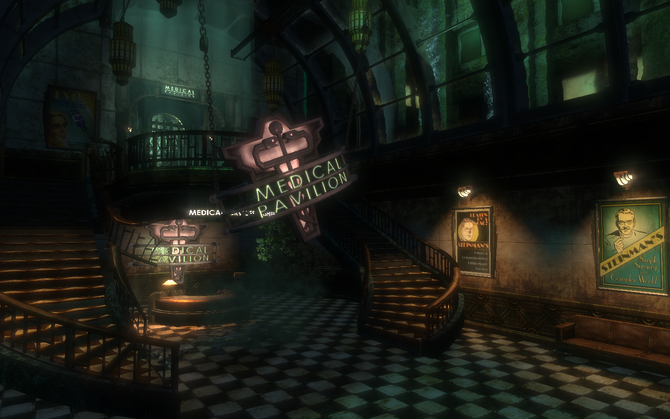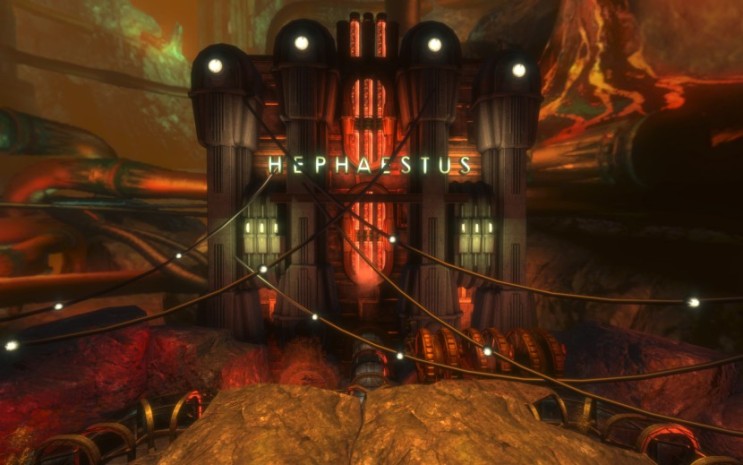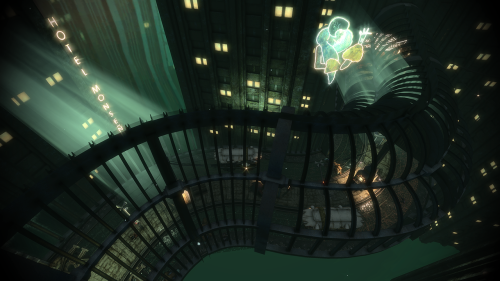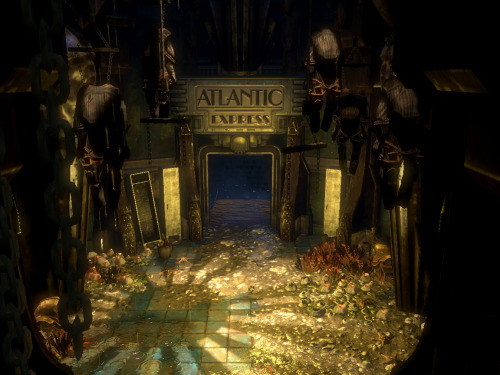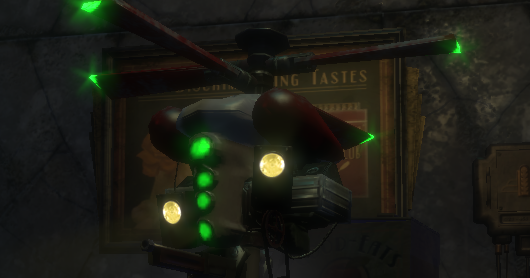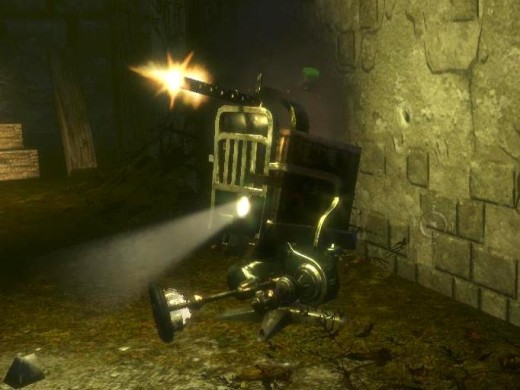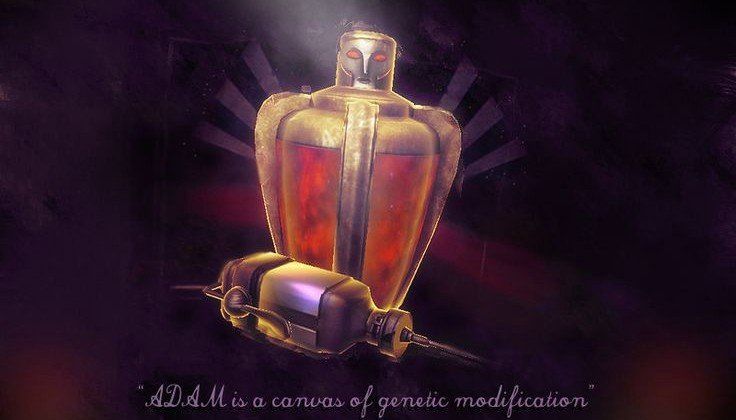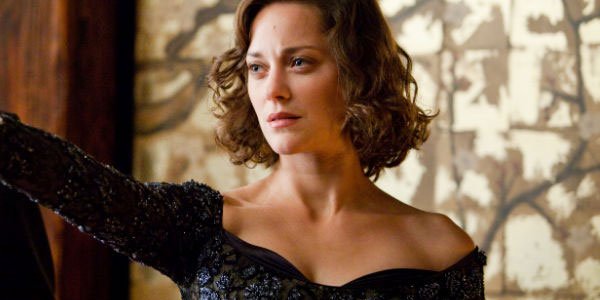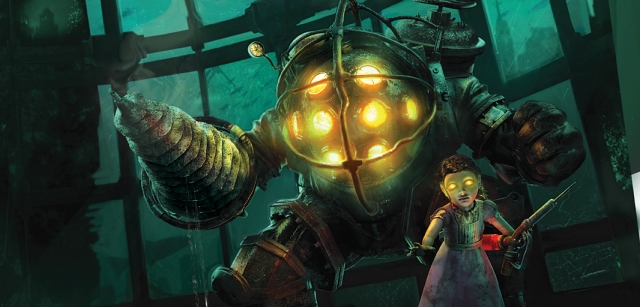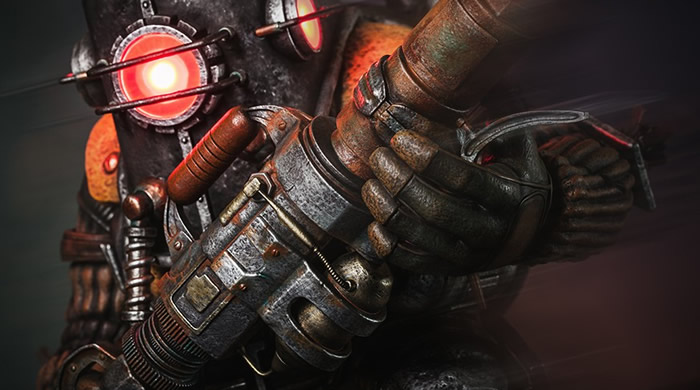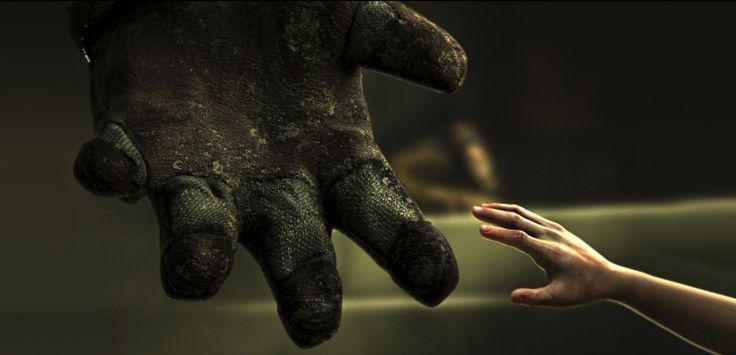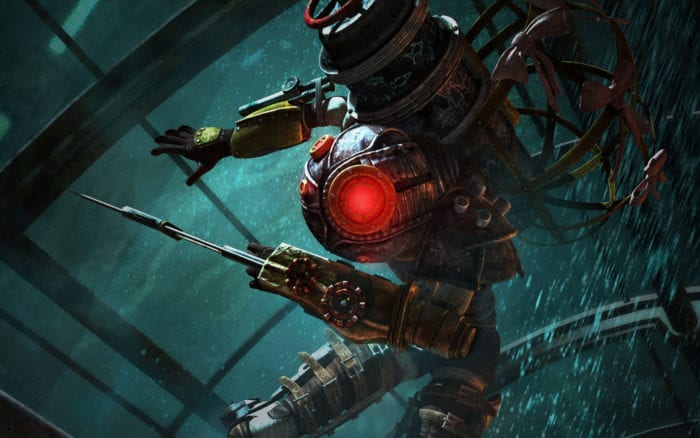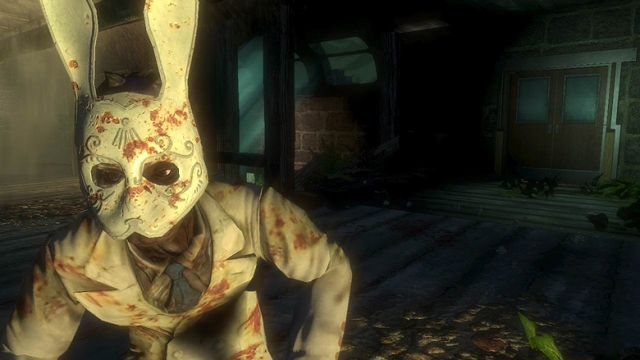@Mag Lev; heheh, I don't like doing things by halves, that's for sure..! Welcome, definitely glad to have your interest ^w^
Vicier
 Member
Member
Demigod at heart <3
- Last Seen: 3 days ago
- Old Guild Username: Vicier
- Joined: 11 yrs ago
- Posts: 3260 (0.82 / day)
- VMs: 0
-
Username history
- Vicier 11 yrs ago
-
Latest 10 profile visitors:
-
Most recent →
 AlteredTundra,
AlteredTundra,
 Rightful Heir,
Rightful Heir,
 Sadie,
tsubasa,
SweetnSilly,
Sadie,
tsubasa,
SweetnSilly,
 Little Bird,
Little Bird,
 Blizz,
Blizz,
 ButtsnBalls,
ButtsnBalls,
 WolfLover,
WolfLover,
 fledermaus
fledermaus
Status
User has no status, yet
Bio
User has no bio, yet
Most Recent Posts
In
♆ ᗯᕮᒪᑕOᗰᕮ TO ᖇᗩᑭTᑌᖇᕮ ♆ - [ ᗷIOSᕼOᑕK ᖇOᒪᕮᑭᒪᗩY ] - 8 SᑭᗩᑕᕮS OᑎᒪY Iᑎᑕ. Gᗰ & ᑕO-Gᗰ; ᖴIᖇST ᑕOᗰᕮ ᖴIᖇST Sᕮᖇᐯᕮᗪ ᗷᗩSIS
→
7 yrs ago
Forum: Casual Interest Checks
In
♆ ᗯᕮᒪᑕOᗰᕮ TO ᖇᗩᑭTᑌᖇᕮ ♆ - [ ᗷIOSᕼOᑕK ᖇOᒪᕮᑭᒪᗩY ] - 8 SᑭᗩᑕᕮS OᑎᒪY Iᑎᑕ. Gᗰ & ᑕO-Gᗰ; ᖴIᖇST ᑕOᗰᕮ ᖴIᖇST Sᕮᖇᐯᕮᗪ ᗷᗩSIS
→
7 yrs ago
Forum: Casual Interest Checks
@Voltus_Ventus; I'm sad to say analogy cause I couldn't think of the words "time loop" in all of my explanation, though I will indeed think on that now the idea is planted in my mind o:
In
♆ ᗯᕮᒪᑕOᗰᕮ TO ᖇᗩᑭTᑌᖇᕮ ♆ - [ ᗷIOSᕼOᑕK ᖇOᒪᕮᑭᒪᗩY ] - 8 SᑭᗩᑕᕮS OᑎᒪY Iᑎᑕ. Gᗰ & ᑕO-Gᗰ; ᖴIᖇST ᑕOᗰᕮ ᖴIᖇST Sᕮᖇᐯᕮᗪ ᗷᗩSIS
→
7 yrs ago
Forum: Casual Interest Checks
The level of detail in the opening post was absolutely stunning, I'm going to have to go through it again just to pick up details that I might not have in the first reading. I'm a bit rusty at writing but I'm hoping I can take this opportunity to RP in one of my favorite game universes to get back into the swing.
Is it safe to assume our OCs will be heralding from the surface? And if so under what premise do they go to Rapture? How far in the future or past or Rapture will we be RPing? Is it Pre-Jack? Post-Jack? I'm assuming Jack is involved in this since he is in the characters section, so what kind of role does he play, or is that secret?
Sorry..!! I posted my response as you edited yours, so I only answered two of your questions.
The first two questions have been answered in my previous post, as for the rest, I will do my best to answer in a way that won't confuse you. I have a habit of doing that, heh...
The way that I have set this roleplay in my mind; the roleplay will take place semi in the present- Rapture is stuck in a kind of stand-still place at this point in time; much like (if you are familiar with the references, if not, ask and I shall explain) the Lotas Hotel in the Percy Jackson series, or the Safe Haven's in The Peculiar Children series. Life continues on; though seems to be in its own sort of world- frozen in that one time (the 50's) until someone or something sets it in motion again.
The person to put Rapture back into motion, is Jack.
Our group of characters arrive after Jack; he is wandering around Rapture (at a much slower pace than in the games or there would be no roleplay, loll) under the instruction of Atlas. When our characters arrive, it throws a spanner into the works- they will meet the characters at any given time; help them, refuse them, trust them, etc. All in order to survive Rapture, and find a way up...
In
♆ ᗯᕮᒪᑕOᗰᕮ TO ᖇᗩᑭTᑌᖇᕮ ♆ - [ ᗷIOSᕼOᑕK ᖇOᒪᕮᑭᒪᗩY ] - 8 SᑭᗩᑕᕮS OᑎᒪY Iᑎᑕ. Gᗰ & ᑕO-Gᗰ; ᖴIᖇST ᑕOᗰᕮ ᖴIᖇST Sᕮᖇᐯᕮᗪ ᗷᗩSIS
→
7 yrs ago
Forum: Casual Interest Checks
@Voltus_Ventus; oh my god..!! First of all; thank you so much for saying so..!! You can even ask @Caits, I have been working like non-stop on this OP for over the last week or so, wanting to make it perfect for everyone..!! Your compliment has seriously just made my day; once again, thank you so, so much..!!
You are, indeed, correct in your assumption that our characters will be coming from the surface world into Rapture- much like the first game, this will be done on by them crashing into the ocean during a plane ride from America to England. One of the eight characters will have ties to Andrew Ryan in some way, shape or form, and will be the one who causes the crash landing the group in Rapture; however, no one in the group will know who it is, as this will be kept a secret until the time it comes out. That one person, whoever it may be, will be the only one who willingly goes there (even though they act like they don't), for the others, it will be more of a "wrong place, wrong time, wrong plane" type circumstance.
You are, indeed, correct in your assumption that our characters will be coming from the surface world into Rapture- much like the first game, this will be done on by them crashing into the ocean during a plane ride from America to England. One of the eight characters will have ties to Andrew Ryan in some way, shape or form, and will be the one who causes the crash landing the group in Rapture; however, no one in the group will know who it is, as this will be kept a secret until the time it comes out. That one person, whoever it may be, will be the only one who willingly goes there (even though they act like they don't), for the others, it will be more of a "wrong place, wrong time, wrong plane" type circumstance.
In
♆ ᗯᕮᒪᑕOᗰᕮ TO ᖇᗩᑭTᑌᖇᕮ ♆ - [ ᗷIOSᕼOᑕK ᖇOᒪᕮᑭᒪᗩY ] - 8 SᑭᗩᑕᕮS OᑎᒪY Iᑎᑕ. Gᗰ & ᑕO-Gᗰ; ᖴIᖇST ᑕOᗰᕮ ᖴIᖇST Sᕮᖇᐯᕮᗪ ᗷᗩSIS
→
7 yrs ago
Forum: Casual Interest Checks
IᑎTᕮᖇᕮSTᕮᗪ Iᑎ ᒍOIᑎIᑎG..?
ᗰᕮSSᗩGᕮ ᗰᕮ Oᖇ Oᑎᕮ Oᖴ ᗰY ᑕO-Gᗰ'S..!
Gᗰ = ᐯIᑕIᕮᖇ.
ᑕO-Gᗰ = ᑕᗩITS, ᗪᗩᗰO021.


"ᗩ ᗰᗩᑎ ᑕᕼOOSᕮS, ᗩ Sᒪᗩᐯᕮ OᗷᕮYS."
♆  ♆
♆
 ♆
♆⥼ ⥽
“I ᗩᗰ ᗩᑎᗪᖇᕮᗯ ᖇYᗩᑎ... ᗩᑎᗪ I'ᗰ ᕼᕮᖇᕮ TO ᗩSK YOᑌ ᗩ ᑫᑌᕮSTIOᑎ.
IS ᗩ ᗰᗩᑎ ᑎOT ᕮᑎTITᒪᕮᗪ TO Tᕼᕮ SᗯᕮᗩT Oᖴ ᕼIS ᗷᖇOᗯ..? 'ᑎO!' SᗩYS Tᕼᕮ ᗰᗩᑎ Iᑎ ᗯᗩSᕼIᑎGTOᑎ, 'IT ᗷᕮᒪOᑎGS TO Tᕼᕮ ᑭOOᖇ'. 'ᑎO!' SᗩYS Tᕼᕮ ᗰᗩᑎ Iᑎ Tᕼᕮ ᐯᗩTIᑕᗩᑎ, 'IT ᗷᕮᒪOᑎGS TO GOᗪ'. 'ᑎO!' SᗩYS Tᕼᕮ ᗰᗩᑎ Iᑎ ᗰOSᑕOᗯ, 'IT ᗷᕮᒪOᑎGS TO ᕮᐯᕮᖇYOᑎᕮ'. I ᖇᕮᒍᕮᑕTᕮᗪ TᕼOSᕮ ᗩᑎSᗯᕮᖇS; IᑎSTᕮᗩᗪ, I ᑕᕼOSᕮ SOᗰᕮTᕼIᑎG ᗪIᖴᖴᕮᖇᕮᑎT- I ᑕᕼOSᕮ Tᕼᕮ IᗰᑭOSSIᗷᒪᕮ.
I ᑕᕼOSᕮ... ᖇᗩᑭTᑌᖇᕮ.
ᗩ ᑕITY ᗯᕼᕮᖇᕮ Tᕼᕮ ᗩᖇTIST ᗯOᑌᒪᗪ ᑎOT ᖴᕮᗩᖇ Tᕼᕮ ᑕᕮᑎSOᖇ... ᗯᕼᕮᖇᕮ Tᕼᕮ SᑕIᕮᑎTIST ᗯOᑌᒪᗪ ᑎOT ᗷᕮ ᗷOᑌᑎᗪ ᗷY ᑭᕮTTY ᗰOᖇᗩᒪITY- ᗯᕼᕮᖇᕮ Tᕼᕮ GᖇᕮᗩT ᗯOᑌᒪᗪ ᑎOT ᗷᕮ ᑕOᑎSTᖇᗩIᑎᕮᗪ ᗷY Tᕼᕮ Sᗰᗩᒪᒪ..! ᗩᑎᗪ ᗯITᕼ Tᕼᕮ SᗯᕮᗩT Oᖴ YOᑌᖇ ᗷᖇOᗯ; ᖇᗩᑭTᑌᖇᕮ ᑕᗩᑎ ᗷᕮᑕOᗰᕮ YOᑌᖇ ᑕITY ᗩS ᗯᕮᒪᒪ.”
⁓ ᗩᑎᗪᖇᕮᗯ ᖇYᗩᑎ; ᑕᖇᕮᗩTOᖇ Oᖴ ᖇᗩᑭTᑌᖇᕮ.
♆  ♆
♆
 ♆
♆⥼ IᑎᖴOᖇᗰᗩTIOᑎ ᗩᗷOᑌT ᖇᗩᑭTᑌᖇᕮ ⥽
ᗩ ᗰᗩSS ᑌᑎᗪᕮᖇᗯᗩTᕮᖇ ᑕITY; ᖇᗩᑭTᑌᖇᕮ (ᗩᒪSO KᑎOᗯᑎ ᗩS Tᕼᕮ "ᑎOᖇTᕼ ᗩTᒪᗩᑎTIᑕ ᑭᖇOᒍᕮᑕT" Oᖇ "Tᕼᕮ ᖇᗩᑭTᑌᖇᕮ ᑕOᒪOᑎY") ᗯᗩS ᖴOᖇGᕮᗪ TᕼᖇOᑌGᕼ Tᕼᕮ ᑭᕮᖇSOᑎᗩᒪ ᗪᖇᕮᗩᗰS Oᖴ ᗩᑎᗪᖇᕮᗯ ᖇYᗩᑎ Iᑎ Oᖇᗪᕮᖇ TO ᑕᖇᕮᗩTᕮ ᗩ STᖇOᑎG ᗩᑎᗪ ᗷᕮᗩᑌTIᖴᑌᒪ ᑕᗩᑭITᗩᒪIST SOᑕIᕮTY ᖴᖇᕮᕮ Oᖴ ᗩᒪᒪ ᖇᕮᒪIGIOᑌS ᗩᑎᗪ GOᐯᕮᖇᑎᗰᕮᑎT IᑎTᕮᖇᖴᕮᖇᕮᑎᑕᕮ, ᗩᗯᗩY ᖴᖇOᗰ Tᕼᕮ ᑭOST-ᗯᗩᖇ ᗩᑎ᙭IᕮTIᕮS Oᖴ ᗯOᖇᒪᗪ ᗯᗩᖇ II- ᗩ ᑭᒪᗩᑕᕮ ᗯᕼᕮᖇᕮ ᗩᑎY ᑕITIᘔᕮᑎ ᑕOᑌᒪᗪ ᗩᑕᕼIᕮᐯᕮ ᖴOᖇ ᕼIS Oᖇ ᕼᕮᖇ Oᗯᑎ ᑭᕮᖇSOᑎᗩᒪ GᗩIᑎ, ᖇᗩTᕼᕮᖇ Tᕼᗩᑎ ᒍᑌST ᖴOᖇ Tᕼᕮ ᗩᒪTᑌᖇISTIᑕ ᖴᑌᒪᖴIᒪᒪᗰᕮᑎT Oᖴ Tᕼᕮ ᗯᗩᑎTS Oᖴ OTᕼᕮᖇS. ᕮSTᗩᗷᒪISᕼᕮᗪ Oᑎ Tᕼᕮ 5Tᕼ Oᖴ ᑎOᐯᕮᗰᗷᕮᖇ, 1946; ᖇᗩᑭTᑌᖇᕮ ᗯᗩS ᗩ ᑭᒪᗩᑕᕮ ᗯᕼᕮᖇᕮ Tᕼᕮ ᗯOᖇᒪᗪS ᗷᕮST ᗩᑎᗪ ᗷᖇIGᕼTᕮST ᗯOᑌᒪᗪ ᗷᕮ GᖇᗩᑎTᕮᗪ ᗷOTᕼ ᖴᖇᕮᕮᗪOᗰ Oᖴ ᗯIᒪᒪ, ᗩᑎᗪ Oᖴ ᑕᕼOIᑕᕮ, ᗩᑎᗪ IᑎSTᕮᗩᗪ Oᖴ ᗩᗷIᗪIᑎG ᗷY Tᕼᕮ TᖇᗩᗪITIOᑎS ᗩᑎᗪ Tᕼᕮ ᗰOᖇᗩᒪ SYSTᕮᗰS IᗰᑭOSᕮᗪ ᗷY Tᕼᕮ GOᐯᕮᖇᑎᗰᕮᑎT, ᖇᕮᒪIGIOᑌS ᗩᑎᗪ OTᕼᕮᖇ IᑎSTITᑌTIOᑎS, ᐯᗩᒪᑌᕮS Sᑌᑕᕼ ᗩS ᒪOGIᑕ ᗩᑎᗪ SᑕIᕮᑎTIᖴIᑕ ᖇᕮᗩSOᑎ ᗯᕮᖇᕮ TO GᑌIᗪᕮ Tᕼᕮ IᑎᕼᗩᗷITᗩᑎTS Iᑎ TᕼᕮIᖇ ᑭᑌᖇSᑌIT Oᖴ ᗩᑕᕼIᕮᐯᕮᗰᕮᑎT ᗩᑎᗪ ᑭᖇOGᖇᕮSS.
TᕼIS ᗯOᑌᒪᗪ-ᗷᕮ ᑌTOᑭIᗩ, ᕼOᗯᕮᐯᕮᖇ, ᕼᗩᗪ ITS ᖴᒪᗩᗯS.
ᗯITᕼIᑎ ᖇᗩᑭTᑌᖇᕮ'S ᑭᑌᖇᕮᒪY ᑕᗩᑭITᗩᒪISTIᑕ SOᑕIᕮTY, Tᕼᕮᖇᕮ ᗯᕮᖇᕮ ᑎO ᑭᑌᗷᒪIᑕᒪY ᖴᑌᑎᗪᕮᗪ SOᑕIᗩᒪ ᑭᖇOGᖇᗩᗰS, ᕮᐯᕮᖇYTᕼIᑎG ᗯITᕼIᑎ Tᕼᕮ ᑕITY ᗯᗩS ᑭᖇIᐯᗩTᕮᒪY Oᗯᑎᕮᗪ ᗩᑎᗪ ᖇᑌᑎ, IᑎᑕᒪᑌᗪIᑎG Tᕼᕮ ᑕITIᕮS ᖴOOᗪ SᑌᑭᑭᒪY, ᕼᕮᗩᒪTᕼ ᑕᗩᖇᕮ, SᗩᑎITᗩTIOᑎ, ᕮᐯᕮᑎ Tᕼᕮ O᙭YGᕮᑎ SᑌᑭᑭᒪY; ᗷOTᕼ Tᕼᕮ ᑭOᒪIᑕᕮ ᗩᑎᗪ ᖴIᖇᕮ ᗪᕮᑭᗩᖇTᗰᕮᑎTS ᗯᕮᖇᕮ SᑌᗷSᑕᖇIᑭTIOᑎ-ᗷᗩSᕮᗪ, ᑭᖇIᐯᗩTᕮᒪY Oᗯᑎᕮᗪ ᑕOᗰᑭᗩᑎIᕮS (ᑭOᑭᑭᗩᗪOᑭOᒪIS ᑭOᒪIᑕᕮ ᗪᕮᑭᗩᖇTᗰᕮᑎT ᗩᑎᗪ ᖴOᑎTᗩIᑎᕮ ᖴIᖇᕮ ᖴIGᕼTᕮᖇS)- Tᕼᕮᖇᕮ ᗯᕮᖇᕮ ᒪᕮSS ᖇᕮSTᖇIᑕTᕮᗪ ᑎOᖇᗰS ᖴOᖇ ᗷᑌSIᑎᕮSSᕮS ᗩᑎᗪ ᒪᗩᗷOᖇ, OᑭᕮᑎᒪY ᗩᒪᒪOᗯIᑎG ᑌᑎSᑕᖇᑌᑭᑌᒪOᑌS ᗷᑌSIᑎᕮSS ᑭᖇᗩᑕTIᑕᕮS, ᗯITᕼ ᑕOᗰᑭᕮTITIOᑎ ᗩᑎᗪ ᑕᑌSTOᗰᕮᖇ'S ᑕᕼOIᑕᕮ ᗷᗩᒪᗩᑎᑕIᑎG OᑌT Tᕼᕮ ᗰᗩᖇKᕮT.
ᗷᑌT ᗯITᕼ TᕼᗩT, ᑕᗩᗰᕮ ᗩ ᑭᖇIᑕᕮ...
TᕼIS SYSTᕮᗰ ᑫᑌIᑕKᒪY ᗩᒪIᕮᑎᗩTᕮᗪ ᖇᗩᑭTᑌᖇᕮ'S ᒪᕮSS ᖴOᖇTᑌᑎᗩTᕮ ᑕITIᘔᕮᑎS, ᗯᕼO ᗯᕼᕮᑎ ᕼᗩᖇᗪ TIᗰᕮS ᑕᗩᗰᕮ, ᗷᕮGᗩᑎ TO ᖇᕮSᕮᑎT ᖇYᗩᑎ'S SOᑕIᕮTY ᗩS ᗷOTᕼ ᑕOᒪᗪ-ᕼᕮᗩᖇTᕮᗪ ᗩᑎᗪ ᕮᒪITIST. ᗩᑎᗪᖇᕮᗯ ᖇYᗩᑎ'S ᕼOSTIᒪITY ᗩᑎᗪ ᑭᗩᖇᗩᑎOIᗩ Oᖴ Tᕼᕮ "ᑭᗩᖇᗩSITᕮS", ᗩᑎᗪ OTᕼᕮᖇS ᕮ᙭ᑭᒪOITIᑎG ᖇᗩᑭTᑌᖇᕮ'S ᖴᖇᕮᕮᗪOᗰS TO SᕮIᘔᕮ ᑭOᗯᕮᖇ ᕮᐯᕮᑎTᑌᗩᒪᒪY ᖇᕮSᑌᒪTᕮᗪ Iᑎ ᑎOT OᑎᒪY ᖇYᗩᑎ'S ᗪOᗯᑎᖴᗩᒪᒪ, ᗷᑌT ᗩᒪSO TᕼᗩT Oᖴ ᕼIS ᑕITY- ᖇYᗩᑎ ISSᑌᕮᗪ ᗩᑎ ᕮᗪIᑕT, ᑕᑌTTIᑎG ᗩᒪᒪ ᑕOᑎTᗩᑕT ᗯITᕼ Tᕼᕮ OᑌTSIᗪᕮ ᗯOᖇᒪᗪ ᗯᕼIᑕᕼ ᗯᗩS Iᑎ Tᕼᕮ ᗰIᗪST Oᖴ Tᕼᕮ ᑕOᒪᗪ ᗯᗩᖇ, ᗪOIᑎG ᕮᐯᕮᖇYTᕼIᑎG ᖇᕮᑫᑌIᖇᕮᗪ ᖴOᖇ Tᕼᕮ ᑕITIᕮS SᗩᖴᕮTY ᗷY KᕮᕮᑭIᑎG ᖇᗩᑭTᑌᖇᕮ'S ᕮ᙭ISTᕮᑎᑕᕮ SᕮᑕᖇᕮT... TᕼIS ᕮᑎᗩᗷᒪᕮᗪ ᗩ ᗰᗩᑎ ᗷY Tᕼᕮ ᑎᗩᗰᕮ Oᖴ ᖴᖇᗩᑎK ᖴOᑎTᗩIᑎᕮ TO ᗷᑌIᒪᗪ ᗩ ᑕᖇIᗰIᑎᗩᒪ ᕮᗰᑭIᖇᕮ TᕼᖇOᑌGᕼ SᗰᑌGGᒪIᑎG, ᗩᑎᗪ TO Tᕼᕮᑎ ᑕᖇᕮᗩTᕮ, ᗩᑎᗪ ᖇᑌᑎ Tᕼᕮ SOᑕIᕮTY-TᖇᗩᑎSᖴOᖇᗰIᑎG ᗩᗪᗩᗰ IᑎᗪᑌSTᖇY. TᕼOᑌGᕼ ᑌᑎᒪIKᕮ Tᕼᕮ ᑕᗩᑭITᗩᒪISTIᑕ ᖇYᗩᑎ, Tᕼᕮ ᗰOᗷSTᕮᖇ ᑕOᑌᒪᗪ ᑎOT ᗷᕮ SᗩTISᖴIᕮᗪ ᗷY TᕼIᑎGS Sᑌᑕᕼ ᗩS ᗰᕮᖇᕮ ᗰᗩTᕮᖇIᗩᒪ ᗯᕮᗩᒪTᕼ— ᕼᕮ ᗯᗩᑎTᕮᗪ ᗰOᖇᕮ... ᕼᕮ ᗯᗩᑎTᕮᗪ ᖇᗩᑭTᑌᖇᕮ TO ᗷᕮ ᕼIS TO ᑕOᑎTᖇOᒪ ᑕOᗰᑭᒪᕮTᕮᒪY.
IT ᗯᗩS ᗪᑌᖇIᑎG TᕼIS TIᗰᕮ TᕼᗩT ᗩ ᑎᕮᗯ ᑎᗩᗰᕮ ᗩᖇOSᕮ... ᗩᑎᗪ ᗯᕼᕮᑎ ᗩ ᗰᗩᑎ ᗷY Tᕼᕮ ᑎᗩᗰᕮ Oᖴ ᗩTᒪᗩS ᗯOᑌᒪᗪ Tᕼᕮᑎ GO Oᑎ TO STᗩᖇT ᗩ ᑕIᐯIᒪ ᗯᗩᖇ ᗯITᕼIᑎ Tᕼᕮ ᑕITY ᕮᐯᕮᑎTᑌᗩᒪᒪY ᒪᕮᗩᗪIᑎG ᖇᗩᑭTᑌᖇᕮ TO ᖇᑌIᑎ ᑌᑎᗪᕮᖇ Tᕼᕮ ᗩᗪᗪIᑕTIOᑎ Oᖴ ᗩᗪᗩᗰ.
:origin()/pre06/44e7/th/pre/i/2016/080/4/e/welcome_to_rapture_by_mbanshee-d9vxwuz.jpg)
ᑭᒪᕮᗩSᕮ ᑎOTᕮ: ᒪOᑕᗩTᕮᗪ ᗩT 63° 2' ᑎ, 29° 55' ᗯ; ᖇᗩᑭTᑌᖇᕮ IS ᑭᒪᗩᑕᕮᗪ ᗩT ᗩᗷOᑌT 433 KIᒪOᗰᕮTᕮᖇS ᗯᕮST Oᖴ Iᑕᕮᒪᗩᑎᗪ'S ᑕᗩᑭITᗩᒪ, ᖇᕮYKᒍᗩᐯIK.
⥼ ᑕOᑎSTᖇᑌᑕTIOᑎ & ᑭᒪᗩᑕᕮS Oᖴ IᑎTᕮᖇᕮST ⥽
ᑕOᗰᗰᕮᑎᑕIᑎG ᒪᗩTᕮ Iᑎ Tᕼᕮ Yᕮᗩᖇ 1945, ᗩᑎᗪᖇᕮᗯ ᖇYᗩᑎ ᑕOᑎTᖇᗩᑕTᕮᗪ ᗩ ᒪᗩᖇGᕮ SᕮᖇIᕮS Oᖴ ᑕOᗰᑭᗩᑎIᕮS Iᑎ Oᖇᗪᕮᖇ TO ᗷᕮGIᑎ ᑕOᑎSTᖇᑌᑕTIOᑎ Oᖴ ᖇᗩᑭTᑌᖇᕮ; ᖇYᗩᑎ, ᗩᒪOᑎG ᗯITᕼ ᕼIS ᗩSSOᑕIᗩTᕮS, ᕼᗩᑭᑭᕮᑎᕮᗪ TO Sᕮᑕᑌᖇᕮ Tᕼᕮ ᗰᗩᑎᑌᖴᗩᑕTᑌᖇIᑎG ᗰᗩTᕮᖇIᗩᒪS Iᑎ SᕮᑕᖇᕮT SO ᗩS TO ᗩᐯOIᗪ ᑌᑎᗯᗩᑎTᕮᗪ ᗩTTᕮᑎTIOᑎ ᖴᖇOᗰ Tᕼᕮ ᑭᖇYIᑎG ᕮYᕮS Oᖴ Tᕼᕮ GOᐯᕮᖇᑎᗰᕮᑎT ᗩᑎᗪ OTᕼᕮᖇ OᖇGᗩᑎIᘔᗩTIOᑎS TᕼᗩT ᗯISᕼᕮᗪ TO ᗪO Tᕼᕮᗰ ᕼᗩᖇᗰ. TᖇᗩᑎSᑭOᖇTᕮᗪ TᕼOᑌSᗩᑎᗪS Oᖴ ᗰIᒪᕮS IᑎTO Tᕼᕮ ᑎOᖇTᕼ ᗩTᒪᗩᑎTIᑕ ᗷY SᕼIᑭS ᗰᑌᑕᕼ ᒪIKᕮ Tᕼᕮ OᒪYᗰᑭIᗩᑎ, Tᕼᕮ ᗰᗩTᕮᖇIᗩᒪS ᗯᕮᖇᕮ Tᕼᕮᑎ SᑌᗷᗰᕮᖇGᕮᗪ TO Tᕼᕮ Oᑕᕮᗩᑎ ᖴᒪOOᖇ ᐯIᗩ ᗩ ᒪᗩᖇGᕮ STᗩTᕮ-Oᖴ-Tᕼᕮ-ᗩᖇT SᑌᗷᗰᕮᖇSIᗷᒪᕮ ᑭᒪᗩTᖴOᖇᗰ ᑎIᑕKᑎᗩᗰᕮᗪ "Tᕼᕮ SIᑎKᕮᖇ", ᗯᕼᕮᖇᕮ ᗪᕮᕮᑭ Sᕮᗩ ᗯᕮᒪᗪᕮᖇS ᗩᑎᗪ ᗰᕮᑕᕼᗩᑎIᑕS SᕮT TO ᗯOᖇK ᑕᖇᕮᗩTIᑎG Tᕼᕮ ᖴOᑌᑎᗪᗩTIOᑎ ᖴOᖇ Tᕼᕮ ᑕITY; SIᑎKIᑎG ᑭIᒪIᑎGS ᗩᑎᗪ GIᖇᗪᕮᖇS ᗪᕮᕮᑭ IᑎTO Tᕼᕮ ᖇOᑕK ᗩᑎᗪ SIᒪT Oᖴ Tᕼᕮ Oᑕᕮᗩᑎ ᖴᒪOOᖇ.
ᗰᗩᑎᗩGIᑎG TO ᑭᕮᖇᗰᗩᑎᕮᑎTᒪY ᗩᑎᑕᕼOᖇ "Tᕼᕮ SIᑎKᕮᖇ" TO Tᕼᕮ Sᕮᗩ'S ᗷOTTOᗰ; ᑭᖇᕮ-ᖴᗩᗷᖇIᑕᗩTᕮᗪ ᗷᑌIᒪᗪIᑎGS ᗯITᕼ ᗩᒪᑌᗰIᑎIᑌᗰ ᖴᖇᗩᗰᕮS ᗯᕮᖇᕮ ᗩSSᕮᗰᗷᒪᕮᗪ ᑎᕮᗩᖇ Tᕼᕮ Sᑌᖇᖴᗩᑕᕮ ᗷᕮᖴOᖇᕮ ᗷᕮIᑎG ᗷOTᕼ SᑌᗷᗰᑌᖇGᕮᗪ ᗩᑎᗪ ᒪOᗯᕮᖇᕮᗪ ᑌSIᑎG ᒪᑌᑎᕮTTᕮ ᖇIᑎGS, ᗩᑎᗪ ᗩᑎᑕᕼOᖇᕮᗪ ᗪOᗯᑎ IᑎTO Tᕼᕮ ᖴOᑌᑎᗪᗩTIOᑎS, TᕼIS ᑕᖇᕮᗩTIᑎG Tᕼᕮ ᗷᕮᗩᑌTIᖴᑌᒪ ᗩᖇT ᗪᕮᑕO ᗰᕮTᖇOᑭOᒪIS ᖇᗩᑭTᑌᖇᕮ IS KᑎOᗯᑎ ᖴOᖇ- ᗩᑎᗪ ᗷY Tᕼᕮ 5Tᕼ Oᖴ ᑎOᐯᕮᗰᗷᕮᖇ, 1946, ᖇᗩᑭTᑌᖇᕮ ᕼᗩᗪ ᗷᕮGᑌᑎ TO ᖇᕮᑕᕮIᐯᕮ Tᕼᕮ ᖴIᖇST Oᖴ ITS ᑎᕮᗯ ᖇᕮSIᗪᕮᑎTS.
Tᕼᕮ ᗰᗩᒍOᖇ ᑕOᑎSTᖇᑌᑕTIOᑎ ᑭᕮᖇIOᗪ Oᖴ ᖇᗩᑭTᑌᖇᕮ ᑕOᑎTIᑎᑌᕮᗪ Oᑎ ᑌᑎTIᒪ Tᕼᕮ ᕮᑎᗪ Oᖴ Tᕼᕮ 1940S, ᗯITᕼ ᐯᗩᖇIOᑌS Sᗰᗩᒪᒪᕮᖇ ᑭᖇOᒍᕮᑕTS ᑕOᑎTIᑎᑌIᑎG ᗷOTᕼ Iᑎ ᗩᑎᗪ ᗩᖇOᑌᑎᗪ Tᕼᕮ ᑕITY ᑌᑎTIᒪ ᖇᗩᑭTᑌᖇᕮ'S ᑕOᑎSTᖇᑌᑕTIOᑎ ᗯᗩS ᕮᐯᕮᑎTᑌᗩᒪᒪY ᑕOᗰᑭᒪᕮTᕮᗪ Iᑎ 1951. ᖇᗩᑭTᑌᖇᕮ IS ᑎOᗯ ᕼOᗰᕮ TO ᗰᗩᑎY ᗩ ᗪIᖴᖴᕮᖇᕮᑎT ᒪOᑕᗩTIOᑎ TᕼᖇOᑌGᕼOᑌT Tᕼᕮ ᑕITY, ᕮᗩᑕᕼ ᗯITᕼ IT'S Oᗯᑎ ᑌᑎIᑫᑌᕮ Tᕼᕮᗰᕮ ᗩᑎᗪ ᗩᑭᑭᕮᗩᖇᗩᑎᑕᕮ.
⥼ ᗷᑌSIᑎᕮSSᕮS Iᑎ ᖇᗩᑭTᑌᖇᕮ ⥽
Oᑎᑕᕮ ᕼOᗰᕮ TO ᗰᗩᑎY ᗩ ᕼOᑭᕮᖴᑌᒪ ᑕITIᘔᕮᑎ, ᖇᗩᑭTᑌᖇᕮ ᕼOᑌSᕮS ᗰᗩᑎY ᗪIᖴᖴᕮᖇᕮᑎT ᗷᑌSIᑎᕮSSᕮS ᗩᑎᗪ ᗯOᖇKᑭᒪᗩᑕᕮS TᕼᗩT ᗯᕮᖇᕮ Oᑎᑕᕮ ᗷᖇIᗰᗰIᑎG ᗯITᕼ ᒪIᖴᕮ, ᗩᑎᗪ ᖇᑌᑎ ᗷY ᗪIᖴᖴᕮᖇᕮᑎT ᖴIGᑌᖇᕮ ᕼᕮᗩᗪS ᗯITᕼIᑎ Tᕼᕮ ᑕITY, OᖴᖴᕮᖇIᑎG ᗰᗩᑎY ᗩ ᗪIᖴᖴᕮᖇᕮᑎT SᕮᖇᐯIᑕᕮS TO TᕼOSᕮ ᗯᕼO ᒪIᐯᕮ ᗯITᕼIᑎ Tᕼᕮ ᖇᗩᑭTᑌᖇᕮ ᑕOᗰᗰᑌᑎITY- ᑕOᗰᑭᗩᑎIᕮS TᕼᗩT ᗯᕮᖇᕮ ᖴOᑌᑎᗪᕮᗪ Iᑎ ᖇᗩᑭTᑌᖇᕮ:
ᗩTᒪᗩᑎTIᑕ ᕮ᙭ᑭᖇᕮSS ⁓ ᖇᗩIᒪᗯᗩY TᖇᗩᑎSᑭOᖇTᗩTIOᑎ ᖴOᖇ ᑕITIᘔᕮᑎS TᕼᗩT ᗯᗩS ᗪᕮᑕOᗰᗰISSIOᑎᕮᗪ YᕮᗩᖇS ᑭᖇᕮᐯIOᑌS ᗩᑎᗪ SᑌᑭᕮᖇSᕮᗪᕮᗪ ᗷY Tᕼᕮ ᖇᗩᑭTᑌᖇᕮ ᗰᕮTᖇO SYSTᕮᗰ. ᖴOᑌᑎᗪᕮᗪ ᗷY ᑭᖇᕮᑎTIᑕᕮ ᗰIᒪᒪ Tᕼᕮᑎ ᗷOᑌGᕼT ᗷY ᗩᑌSTᕮᑎ ᗷᗩTᕼYSᑭᕼᕮᖇᕮ.
ᑕIᖇᑕᑌS Oᖴ ᐯᗩᒪᑌᕮS ⁓ ᐯᕮᑎᗪIᑎG ᗰᗩᑕᕼIᑎᕮ ᑕOᗰᑭᗩᑎY TᕼᗩT SᕮᒪᒪS ᐯᗩᖇIOᑌS ITᕮᗰS (ᗩᗰOᑎG Tᕼᕮᗰ, ᗩᗰᗰᑌᑎITIOᑎ ᑌSᕮᗪ ᗪᑌᖇIᑎG Tᕼᕮ ᖇᗩᑭTᑌᖇᕮ ᑕIᐯIᒪ ᗯᗩᖇ). Oᗯᑎᕮᗪ ᗷY ᒪᒪOYᗪ ᗯᕮᗷSTᕮᖇ.
ᕮᒪ ᗩᗰᗰO ᗷᗩᑎᗪITO ⁓ ᐯᕮᑎᗪIᑎG ᗰᗩᑕᕼIᑎᕮS ᖴOᖇ ᗯᕮᗩᑭOᑎS ᗩᑎᗪ ᗩᗰᗰᑌᑎITIOᑎ.
ᖴOᑎTᗩIᑎᕮ ᖴᑌTᑌᖇISTIᑕS ⁓ ᗰᗩIᑎᒪY ᑭᒪᗩSᗰIᗪ ᗩᑎᗪ TOᑎIᑕ ᑭᖇOᗪᑌᑕTIOᑎ ᖴᗩᑕIᒪITIᕮS. ᖴOᑌᑎᗪᕮᗪ ᗷY ᖴᖇᗩᑎK ᖴOᑎTᗩIᑎᕮ ᗷᕮᖴOᖇᕮ ᗷᕮIᑎG ᑎᗩTIOᑎᗩᒪIᘔᕮᗪ ᗷY ᖇYᗩᑎ IᑎᗪᑌSTᖇIᕮS, ᗷY Oᖇᗪᕮᖇ Oᖴ Tᕼᕮ ᖇᗩᑭTᑌᖇᕮ ᑕᕮᑎTᖇᗩᒪ ᑕOᑌᑎᑕIᒪ.
ᖴOᑎTᗩIᑎᕮ'S ⁓ ᗩ ᒪᗩᐯISᕼ SᕼOᑭᑭIᑎG ᑕᕮᑎTᕮᖇ Oᗯᑎᕮᗪ ᗷY ᖴᖇᗩᑎK ᖴOᑎTᗩIᑎᕮ, SᕮᒪᒪIᑎG ᗰᗩᑎY Oᖴ ᕼIS ᑭᖇOᗪᑌᑕTS Sᑌᑕᕼ ᗩS ᗰᕮᑎ ᗩᑎᗪ ᒪᗩᗪIᕮS ᑕᒪOTᕼᕮS, ᑭᒪᗩSᗰIᗪS Oᖇ ᕼOᗰᕮ ᕮᒪᕮᑕTᖇOᑎIᑕS. Tᕼᕮ ᗪᕮᑭᗩᖇTᗰᕮᑎT STOᖇᕮ ᗷᑌIᒪᗪIᑎGS ᗯᕮᖇᕮ ᑕOᑎᐯᕮᖇTᕮᗪ IᑎTO ᗩ ᑭᖇISOᑎ ᖴOᖇ ᖴOᑎTᗩIᑎᕮ'S SᑭᒪIᑕᕮᗪ ᖴOᒪᒪOᗯᕮᖇS ᗩᖴTᕮᖇ ᕼIS ᗪᕮᗩTᕼ.
GᗩTᕼᕮᖇᕮᖇ'S Gᗩᖇᗪᕮᑎ ⁓ ᐯᕮᑎᗪIᑎG ᗰᗩᑕᕼIᑎᕮ ᖴOᖇ GᕮᑎᕮTIᑕ ᑌᑭGᖇᗩᗪᕮS. TᕼIS ᗷᑌSIᑎᕮSS ᗪᕮᗩᒪT ᗯITᕼ ᗩᗪᗩᗰ ᗩS ᑕᑌᖇᖇᕮᑎᑕY, ᑎOT ᑕOᗰᗰOᑎ ᗰOᑎᕮY. ᗷᕮᒪOᑎGS TO ᖇYᗩᑎ IᑎᗪᑌSTᖇIᕮS.
ᒍᕮT-ᑭOSTᗩᒪ ⁓ Tᕼᕮ ᗰᗩIᑎ ᑕITYᗯIᗪᕮ SYSTᕮᗰ ᖴOᖇ ᗪISTᖇIᗷᑌTIᑎG ᗰᗩIᒪ ᗩᑎᗪ ᑭᗩᖇᑕᕮᒪS TᕼᖇOᑌGᕼ ᑭᑎᕮᑌᗰO TᑌᗷᕮS.
ᑭOᗯᕮᖇ TO Tᕼᕮ ᑭᕮOᑭᒪᕮ ⁓ ᖴᖇᕮᕮ ᐯᕮᑎᗪIᑎG ᗰᗩᑕᕼIᑎᕮS ᖴOᖇ ᑕᑌSTOᗰ ᗯᕮᗩᑭOᑎS ᑌᑭGᖇᗩᗪᕮS. ᗷᕮᒪOᑎGS TO ᖴOᑎTᗩIᑎᕮ ᖴᑌTᑌᖇISTIᑕS.
ᖇᗩᑭTᑌᖇᕮ ᑕᕮᑎTᖇᗩᒪ ᑕOᗰᑭᑌTIᑎG ⁓ ᑕOᗰᑭᑌTIᑎG ᗩᑎᗪ ᑕᗩᒪᑕᑌᒪᗩTIOᑎ ᗪᗩTᗩ ᑕᕮᑎTᕮᖇ ᖴOᖇ ᖇᗩᑭTᑌᖇᕮ. ᑭᕮᖇᖴOᖇᗰS ᑕOᗰᑭᑌTᗩTIOᑎS ᖴOᖇ OTᕼᕮᖇ ᗷᑌSIᑎᕮSSᕮS ᗩᑎᗪ OᑭᕮᖇᗩTᕮS ᗩᑎᗪ ᗰᗩᑎᗩGᕮS ᗩᑌTOᗰᗩTᕮᗪ SYSTᕮᗰS Oᖴ ᖇᗩᑭTᑌᖇᕮ TᕼᖇOᑌGᕼ Tᕼᕮ TᕼIᑎKᕮᖇ. ᑕO-ᖴOᑌᑎᗪᕮᗪ ᗷY ᑕᕼᗩᖇᒪᕮS ᗰIᒪTOᑎ ᑭOᖇTᕮᖇ ᗩᑎᗪ ᖇᕮᕮᗪ ᗯᗩᕼᒪ.
ᖇᗩᑭTᑌᖇᕮ ᗰᕮTᖇO ⁓ ᗩ ᑕOᑎSOᒪIᗪᗩTᕮᗪ TᖇᗩᑎSᑭOᖇTᗩTIOᑎ SYSTᕮᗰ ᑕᗩᖇᖇYIᑎG ᑕITIᘔᕮᑎS TO ᗩᖇᕮᗩS Oᖴ Tᕼᕮ ᑕITY. ᖴOᑌᑎᗪᕮᗪ ᗷY ᗩᑎTOᑎ KIᑎKᗩIᗪᕮ.
ᖇYᗩᑎ IᑎᗪᑌSTᖇIᕮS ⁓ ᑕOᑎSTᖇᑌᑕTIOᑎ, ᑌTIᒪITIᕮS ᗩᑎᗪ ᑭᖇOᗪᑌᑕT ᗪᕮᐯᕮᒪOᑭᗰᕮᑎT. ᖴOᑌᑎᗪᕮᗪ ᗷY ᗩᑎᗪᖇᕮᗯ ᖇYᗩᑎ.
SᕮᑕᑌᖇIS ⁓ ᑕOᑎSTᖇᑌᑕTIOᑎ ᑕOᗰᑭᗩᑎY ᖴOᖇ ᗷᑌᒪKᕼᕮᗩᗪ ᗪOOᖇS ᗩᑎᗪ ᗩIᖇᒪOᑕKS Oᖴ Tᕼᕮ ᑕITY.
SIᑎᑕᒪᗩIᖇ SOᒪᑌTIOᑎS ⁓ ᑭᖇOᐯIᗪᕮS ᐯᗩᖇIOᑌS SᕮᖇᐯIᑕᕮS TO ᗷᑌSIᑎᕮSSᕮS ᗩᑎᗪ IᑎᗪIᐯIᗪᑌᗩᒪS, Iᑎ ᑭᗩᖇTIᑕᑌᒪᗩᖇ ᑭᒪᗩSᗰIᗪ ᗩᑎᗪ Gᕮᑎᕮ TOᑎIᑕ TᕮSTIᑎG ᖴOᖇ OTᕼᕮᖇ ᑕOᗰᑭᗩᑎIᕮS Sᑌᑕᕼ ᗩS ᖴOᑎTᗩIᑎᕮ ᖴᑌTᑌᖇISTIᑕS ᖴIᖇST, Tᕼᕮᑎ ᖇYᗩᑎ IᑎᗪᑌSTᖇIᕮS. ᖴOᑌᑎᗪᕮᗪ ᗷY ᗩᑌGᑌSTᑌS SIᑎᑕᒪᗩIᖇ.
⥼ ᖇᕮᒪIGIOᑌS ᗷᕮᒪIᕮᖴS & ᑭᕼIᒪOSOᑭᕼIᕮS ⥽
ᖴOᑌᑎᗪ Iᑎ ᗩ ᖇᗩTᕼᕮᖇ ᕼᕮᗩTᕮᗪ ᑭᑌᗷᒪIᑕ ᗪᕮᗷᗩTᕮ ᗩGᗩIᑎST SOᖴIᗩ ᒪᗩᗰᗷ; ᗩᑎᗪᖇᕮᗯ ᖇYᗩᑎ ᗷᕮᒪIᕮᐯᕮS TᕼᗩT IᑎᗪIᐯIᗪᑌᗩᒪS ᕼᗩᐯᕮ ᗩ ᖇIGᕼT TO ᖇᕮᒪIGIOᑎ, TᕼOᑌGᕼ OᑎᒪY Iᑎ ᑭᖇIᐯᗩTᕮ, ᗩᑎᗪ TᕼᗩT Tᕼᕮᖇᕮ ᗯᕮᖇᕮ ᑎOT TO ᗷᕮ ᗩᑎY Sᑌᑕᕼ ᑭᑌᗷᒪIᑕ IᑎSTITᑌTIOᑎS Iᑎ ᖇᗩᑭTᑌᖇᕮ- Tᕼᕮ ᖴOᒪᒪOᗯIᑎG ᗩᖇᕮ Tᕼᕮ ᖴIᐯᕮ ᗰᗩᒍOᖇ ᗷᕮᒪIᕮᖴ SYSTᕮᗰS TᕼᗩT ᗩᖇᕮ ᕼᕮᒪᗪ ᗷY Tᕼᕮ ᑕITIᘔᕮᑎS Oᖴ Tᕼᕮ ᑕITY:
Tᕼᕮ ᖇᗩᑭTᑌᖇᕮ ᖴᗩᗰIᒪY ⁓ ᕮᐯᕮᖇYOᑎᕮ OᗯᕮS ᕮᗩᑕᕼ OTᕼᕮᖇ ᗩ SᕮᑎSᕮ Oᖴ ᑌᑎITY ᗩᑎᗪ ᗷᖇOTᕼᕮᖇᕼOOᗪ. TᕼIS ᗯᗩS Tᕼᕮ ᗰOST ᖇᕮᑕᕮᑎT ᑕᑌᒪT TO ᕼᗩᐯᕮ ᗩᑭᑭᕮᗩᖇᕮᗪ Iᑎ ᖇᗩᑭTᑌᖇᕮ, ᕼᗩᐯIᑎG ᗷᕮᕮᑎ ᑕᖇᕮᗩTᕮᗪ ᗩᑎᗪ ᑭᖇOᗰOTᕮᗪ ᗷY SOᖴIᗩ ᒪᗩᗰᗷ ᗩᑎᗪ SIᗰOᑎ ᗯᗩᒪᕮS.
Tᕼᕮ GᖇᕮᗩT ᑕᕼᗩIᑎ ⁓ ᗷᕮᒪIᕮᖴ Iᑎ Sᕮᒪᖴ-IᑎTᕮᖇᕮST ᗩᑎᗪ ᖴᖇᕮᕮ ᗰᗩᖇKᕮTS ᗯᕼIᑕᕼ ᑌᑎITᕮ Tᕼᕮ ᑭᕮOᑭᒪᕮ Iᑎ TᕼᕮIᖇ ᖴOᖇᗯᗩᖇᗪ ᑭᖇOGᖇᕮSS. TᕼIS IS ᗰOᖇᕮ Oᖴ ᗩ ᑭᕼIᒪOSOᑭᕼY Tᕼᗩᑎ ᗩ ᖇᕮᒪIGIOᑎ, ᗩS IT IS ᗩ ᗷᕮᒪIᕮᖴ ᑭᖇOᗰOTᕮᗪ ᗷY ᗩᑎᗪᖇᕮᗯ ᖇYᗩᑎ, ᗯᕼO IS ᗩ STᗩᑌᑎᑕᕼ ᗩTᕼᕮIST.
ᑕᕼᖇISTIᗩᑎITY ⁓ ᗷᕮᒪIᕮᖴ Iᑎ Tᕼᕮ ᑕᕼᖇISTIᗩᑎ GOᗪ ᗩᑎᗪ ᑕᕼᖇIST ᗩS Tᕼᕮ SᗩᐯIOᖇ Oᖴ ᕼᑌᗰᗩᑎITY. TᕼIS IS ᗩᑎ ᑌᑎᗪᕮᖇGᖇOᑌᑎᗪ ᖇᕮᒪIGIOᑎ Iᑎ ᖇᗩᑭTᑌᖇᕮ, ᗩS IT IS OᖴᖴIᑕIᗩᒪᒪY ᗷᗩᑎᑎᕮᗪ ᗩS ᗩᑎ OᖇGᗩᑎIᘔᕮᗪ ᖇᕮᒪIGIOᑎ. Tᕼᕮ ᗷᗩᑎ ᕮᑎᗩᗷᒪᕮᗪ SᗰᑌGGᒪᕮᖇS TO ᗰᗩKᕮ ᗰOᑎᕮY ᖴᖇOᗰ SᗰᑌGGᒪIᑎG ᗰᗩᑎY ᖇᕮᒪIGIOᑌS ᗩᖇTIᖴᗩᑕTS, ᗩᑎᗪ Gᗩᐯᕮ ᖴᑌᕮᒪ TO ᗪᕮᗰᕮᑎTᕮᗪ ᖇᕮᒪIGIOᑌS ᖴᗩᑎᗩTIᑕISᗰ (ᗩS SᕼOᗯᑎ ᗷY Tᕼᕮ ᗯᗩᗪᕮᖇS SᑭᒪIᑕᕮᖇ TYᑭᕮ).
ᗩTᕼᕮISᗰ ⁓ Tᕼᕮ ᗪISᗷᕮᒪIᕮᖴ Iᑎ ᗩ ᗰᕮTᗩᑭᕼYSIᑕᗩᒪ GOᗪ Oᖇ SᑭIᖇITᑌᗩᒪ ᗷᕮIᑎGS. TᕼIS IS Tᕼᕮ OᖴᖴIᑕIᗩᒪ ᑭᕼIᒪOSOᑭᕼIᑕᗩᒪ STᗩᑎᑕᕮ Oᖴ ᖇᗩᑭTᑌᖇᕮ, ᗩS IᗰᑭOSᕮᗪ ᗷY ᗩᑎᗪᖇᕮᗯ ᖇYᗩᑎ.
Tᕼᕮ SᗩTᑌᖇᑎIᑎᕮ ⁓ ᗩ ᗪᗩᖇK ᑭᗩGᗩᑎ ᑕᑌᒪT ᖴOᑌᑎᗪ Iᑎ ᗩᖇᑕᗩᗪIᗩ. ᗯOᖇSᕼIᑭᕮᖇS Oᖴ TᕼIS ᑕᑌᒪT ᗪᖇIᑎK ᕼᑌᗰᗩᑎ ᗷᒪOOᗪ ᗩS ᗯᕮᒪᒪ ᗩS ᑕᑌᑭS ᖴᑌᒪᒪ Oᖴ ᑭᒪᗩSᗰIᗪS (ᗰOST ᒪIKᕮᒪY ᖇᗩᗯ ᗩᗪᗩᗰ). TᕼᕮY ᗩᒪSO ᗷᕮᒪIᕮᐯᕮ TᕼᕮY ᕼᗩᐯᕮ ᗷᕮᕮᑎ "TOᑌᑕᕼᕮᗪ" ᗷY Tᕼᕮ ᗩᑎᑕIᕮᑎT GOᗪS.
⥼ SᑕIᕮᑎᑕᕮ & TᕮᑕᕼᑎOᒪOGY ⥽
ᗷᕮᒪIᕮᐯIᑎG TᕼᗩT SᑕIᕮᑎTIᖴIᑕ ᗩᑕᕼIᕮᐯᕮᗰᕮᑎT ᗯITᕼIᑎ Tᕼᕮ ᗯOᖇᒪᗪ ᗯᗩS ᗷᕮIᑎG ᖇᕮSTᖇIᑕTᕮᗪ ᗷY 'ᑭᕮTTY ᗰOᖇᗩᒪITY', ᗩᑎᗪᖇᕮᗯ ᖇYᗩᑎ SOᑌGᕼT TO ᕮᑎSᑌᖇᕮ TᕼᗩT Tᕼᕮ IᑎᕼᗩᗷITᗩᑎTS Oᖴ ᖇᗩᑭTᑌᖇᕮ ᑕOᑌᒪᗪ ᕮ᙭ᑭᒪOᖇᕮ ᐯᗩᖇIOᑌS ᑭᗩTᕼS Oᖴ IᑎᑫᑌIᖇY ᑭᖇᕮᐯIOᑌSᒪY ᗪᕮᕮᗰᕮᗪ TOO IᗰᗰOᖇᗩᒪ, Oᖇ TOO ᑕOᑎTᖇOᐯᕮᖇSIᗩᒪ TO ᖴOᒪᒪOᗯ, ᗩᑎᗪ ᗯᕼIᒪᕮ SOᗰᕮ SᑕIᕮᑎTIᖴIᑕ ᗷᖇᕮᗩKTᕼᖇOᑌGᕼS ᗯᕮᖇᕮ Iᑎ ᖇOᗷOTIᑕS, ᗷᖇIᑎGIᑎG ᗩᗷOᑌT ᗩᑎ ᗩᗪᐯᗩᑎᑕᕮᗪ ᗩᑌTOᗰᗩTᕮᗪ SᕮᑕᑌᖇITY SYSTᕮᗰ; OTᕼᕮᖇS ᗯᕮᖇᕮ Iᑎ ᗷIOᒪOGY, ᗯᕼᕮᖇᕮ ᗪᕮᐯᕮᒪOᑭᗰᕮᑎTS ᗩᗪᐯᗩᑎᑕᕮᗪ Iᑎ Tᕼᕮ ᖇᕮSTOᖇᗩTIOᑎ Oᖴ ᒪIᖴᕮ, ᗷOTᕼ Iᑎ ᑭᒪᗩᑎTS (Tᕼᕮ ᒪᗩᘔᗩᖇᑌS ᐯᕮᑕTOᖇ), ᗩᑎᗪ Iᑎ ᕼᑌᗰᗩᑎS (Tᕼᕮ ᐯITᗩ-ᑕᕼᗩᗰᗷᕮᖇ)- Tᕼᕮᖇᕮ ᗯᕮᖇᕮ ᗩᒪSO ᗰᗩᑎY TᕮᑕᕼᑎOᒪOGIᑕᗩᒪ ᗩᗪᐯᗩᑎᑕᕮᗰᕮᑎTS ᖇᕮGᗩᖇᗪIᑎG ITᕮᗰS TᕼᗩT ᗯᕮᖇᕮ ᑕᖇᕮᗩTᕮᗪ ᗯᕮᒪᒪ ᗷᕮᖴOᖇᕮ TᕼᕮY ᗯᕮᖇᕮ ᑕOᗰᗰᕮᖇᑕIᗩᒪᒪY ᗩᐯᗩIᒪᗩᗷᒪᕮ Oᑎ Tᕼᕮ Sᑌᖇᖴᗩᑕᕮ, Sᑌᑕᕼ ᗩS: ᑭOᖇTᗩᗷᒪᕮ ᖇᕮᑕOᖇᗪIᑎG ᗪᕮᐯIᑕᕮS (ᗩᑭᑭᖇO᙭. ᖴIᐯᕮ YᕮᗩᖇS ᕮᗩᖇᒪY), ᗩᑌTOᗰᗩTIᑕ ᗪOOᖇS (ᗩᑭᑭᖇO᙭. ᕮIGᕼT YᕮᗩᖇS ᕮᗩᖇᒪY), ᗩᑎᗪ ᐯOᑕᗩᒪ ᗷIOᗰᕮTᖇIᑕ SᕮᑕᑌᖇITY.
KᑎOᗯᑎ TO ᗷᕮ Oᑎᕮ Oᖴ Tᕼᕮ ᗷIGGᕮST ᗷᖇᕮᗩKTᕼᖇOᑌGᕼS ᗩᑕᕼIᕮᐯᕮᗪ ᗯITᕼIᑎ ᖇᗩᑭTᑌᖇᕮ ᗯᗩS ᗷᖇIGIᗪ Tᕮᑎᕮᑎᗷᗩᑌᗰ'S ᗪISᑕOᐯᕮᖇY Oᖴ ᗩᗪᗩᗰ- ᑌᑎSTᗩᗷᒪᕮ STᕮᗰ ᑕᕮᒪᒪS ᖴᖇOᗰ ᗩ SᑭᕮᑕIᕮS Oᖴ Sᕮᗩ SᒪᑌG ᗯᕼIᑕᕼ ᒪᕮᗪ TO Tᕼᕮ ᑕᖇᕮᗩTIOᑎ Oᖴ ᗷOTᕼ ᑭᒪᗩSᗰIᗪS, ᗩᑎᗪ Gᕮᑎᕮ TOᑎIᑕS. ᗩᗪᗩᗰ ᗩᒪᒪOᗯᕮᗪ Tᕼᕮ ᑌSᕮᖇ TO SᑭᒪIᑕᕮ ᑎᕮᗯ GᕮᑎᕮTIᑕ ᗰᗩTᕮᖇIᗩᒪ IᑎTO Tᕼᕮ IᑎᗪIᐯIᗪᑌᗩᒪ'S ᗪᑎᗩ, ᕮᑎᕼᗩᑎᑕIᑎG ᗷOTᕼ ᕼᕮᗩᒪTᕼ ᗩᑎᗪ IᑎTᕮᒪᒪᕮᑕT, ᗩᑎᗪ GIᐯIᑎG ᕮ᙭TᖇᗩOᖇᗪIᑎᗩᖇY ᑭOᗯᕮᖇS TO Tᕼᕮ ᕼᑌᗰᗩᑎ ᗷOᗪY; ᕼOᗯᕮᐯᕮᖇ, ᗩᗪᗩᗰ ᗯᗩS SOOᑎ ᖴOᑌᑎᗪ TO ᑕᗩᑌSᕮ ᑎOT OᑎᒪY ᑭᕼYSIᑕᗩᒪ, ᗷᑌT ᗩᒪSO ᗰᕮᑎTᗩᒪ ᗪISᖇᑌᑭTIOᑎ ᗩᑎᗪ ᗪᗩᗰᗩGᕮ ᗩS ᗰOᖇᕮ Oᖴ Tᕼᕮ ᑌSᕮᖇ'S ᑎᗩTIᐯᕮ ᑕᕮᒪᒪS ᗯᕮᖇᕮ ᖇᕮᑭᒪᗩᑕᕮᗪ ᗷY TᕼOSᕮ Oᖴ Tᕼᕮ ᑌᑎSTᗩᗷᒪᕮ STᕮᗰ ᑕᕮᒪᒪS, ᗩᑎᗪ ᗯITᕼ TᕼᗩT, Tᕼᕮ ᑭOᑭᑌᒪᗩᑕᕮ'S ᑎᕮᕮᗪ ᖴOᖇ ᗩᗪᗩᗰ ᗷᕮᑕᗩᗰᕮ ᗩᑎ ᗩᗪᗪIᑕTIOᑎ... ᗩᑕᑕᕮᒪᕮᖇᗩTᕮᗪ ᗷY Tᕼᕮ ᕮ᙭ᑕᕮSSIᐯᕮ SᑭᒪIᑕIᑎG TᕼᗩT ᗯᗩS ᗪOᑎᕮ IᑎᑕᖇᕮᗩSIᑎGᒪY ᗪᑌᖇIᑎG, ᗩᑎᗪ ᗩᖴTᕮᖇ ᖇᗩᑭTᑌᖇᕮ'S ᑕIᐯIᒪ ᗯᗩᖇ.
⥼ TᖇᗩᑎSᑭOᖇTᗩTIOᑎ ⥽
TᖇᗩᑎSᑭOᖇTᗩTIOᑎ ᗯITᕼIᑎ ᖇᗩᑭTᑌᖇᕮ IS ᑭᖇOᐯIᗪᕮᗪ ᗰᗩIᑎᒪY ᗷY ᖇᗩᑭTᑌᖇᕮ ᗰᕮTᖇO; ᗩ ᑭᑌᗷᒪIᑕ TᖇᗩᑎSᑭOᖇTᗩTIOᑎ SYSTᕮᗰ ᑕOᑎSISTIᑎG Oᖴ ᗷOTᕼ ᗷᗩTᕼYSᑭᕼᕮᖇᕮS ᗩᑎᗪ Tᖇᗩᗰ ᑕᗩᖇS, Iᑎ ᗯᕼIᑕᕼ ᑕITIᘔᕮᑎS ᗩᖇᕮ GIᐯᕮᑎ ᗩᑕᑕᕮSS TO ᗪIᖴᖴᕮᖇᕮᑎT ᑭᒪᗩᑕᕮS TᕼᖇOᑌGᕼOᑌT Tᕼᕮ ᑕITY. ᗩ SIᑎGᒪᕮ TᕮᖇᗰIᑎᑌS Oᖴ Tᕼᕮ ᖇᗩᑭTᑌᖇᕮ ᗰᕮTᖇO SYSTᕮᗰ IS Tᕼᕮ ᗷᗩTᕼYSᑭᕼᕮᖇᕮ ᗪOᑕK ᒪOᑕᗩTᕮᗪ IᑎSIᗪᕮ Tᕼᕮ ᖇᕮᗰOTᕮ ᒪIGᕼTᕼOᑌSᕮ Iᑎ Tᕼᕮ ᑎOᖇTᕼ ᗩTᒪᗩᑎTIᑕ; ᖇᗩᑭTᑌᖇᕮ'S ᑭᖇIᗰᗩᖇY ᕮᑎTᖇᗩᑎᑕᕮ TO Tᕼᕮ OᑌTSIᗪᕮ ᗯOᖇᒪᗪ.
ᗩᑎOTᕼᕮᖇ ᗰOᗪᕮ Oᖴ TᖇᗩᑎSᑭOᖇTᗩTIOᑎ ᗯITᕼIᑎ ᖇᗩᑭTᑌᖇᕮ IS Tᕼᕮ ᗩTᒪᗩᑎTIᑕ ᕮ᙭ᑭᖇᕮSS; ᗩ ᑭᖇᕮSSᑌᖇIᘔᕮᗪ ᖇᗩIᒪ SYSTᕮᗰ ᖴOᖇ ᗰOᐯIᑎG ᗩ ᒪᗩᖇGᕮᖇ ᑎᑌᗰᗷᕮᖇ Oᖴ ᑕITIᘔᕮᑎS, TᕼOᑌGᕼ TᕼIS ᑭᗩᖇTIᑕᑌᒪᗩᖇ ᗰOᗪᕮ Oᖴ TᖇᗩᑎSᑭOᖇTᗩTIOᑎ ᗯᗩS ᗰOSTᒪY ᗪᕮᑕOᗰᗰISSIOᑎᕮᗪ SIᑎᑕᕮ Tᕼᕮ OᑌTᗷᖇᕮᗩK Oᖴ ᖇᗩᑭTᑌᖇᕮ'S ᑕIᐯIᒪ ᗯᗩᖇ. ᗩᗪᒍᗩᑕᕮᑎT ᗩᖇᕮᗩS ᗯITᕼIᑎ ᖇᗩᑭTᑌᖇᕮ ᗩᖇᕮ ᑕOᑎᑎᕮᑕTᕮᗪ TᕼᖇOᑌGᕼ ᗷᑌᒪKᕼᕮᗩᗪ ᗪOOᖇS, ᗩᑎᗪ ᗩᖇᕮᗩS ᗯITᕼIᑎ SOᗰᕮ ᒪᕮᐯᕮᒪS ᗩᖇᕮ ᑕOᑎᑎᕮᑕTᕮᗪ TO Oᑎᕮ ᗩᑎOTᕼᕮᖇ ᗷY GᒪᗩSS TᑌᑎᑎᕮᒪS: Sᗰᗩᒪᒪ OᑎᕮS ᖴOᖇ ᑭᕮᗪᕮSTᖇIᗩᑎS, ᗩᑎᗪ ᒪᗩᖇGᕮᖇ OᑎᕮS ᖴOᖇ Tᕼᕮ SYSTᕮᗰ Oᖴ ᖇᗩIᒪᕮᗪ TᖇᗩᗰᗯᗩYS.
ᖇᗩᑭTᑌᖇᕮ IS IᑎTᕮᑎTIOᑎᗩᒪᒪY ISOᒪᗩTᕮᗪ ᖴᖇOᗰ Tᕼᕮ ᗯOᖇᒪᗪ, ᗩᑎᗪ Tᕼᕮ ᑭᖇIᗰᗩᖇY ᗰOᗪᕮ Oᖴ ᗩᑕᑕᕮSS ᗯᗩS ᐯIᗩ ᗷᗩTᕼYSᑭᕼᕮᖇᕮS TᖇᗩᐯᕮᒪᒪIᑎG ᗪOᗯᑎ ᖴᖇOᗰ Tᕼᕮ ᒪIGᕼTᕼOᑌSᕮ, ᑭᕮᖇᑕᕼᕮᗪ Oᑎ ᗩᑎ ISᒪᗩᑎᗪ ᗩᗷOᐯᕮ.
♆  ♆
♆
 ♆
♆⥼ IᑎᖴOᖇᗰᗩTIOᑎ ᗩᗷOᑌT ᗩᗪᗩᗰ ⥽
ᗩ SᑌᗷSTᗩᑎᑕᕮ ᗷOTᕼ ᕼᗩᖇᐯᕮSTᕮᗪ ᗩᑎᗪ ᑭᖇOᑕᕮSSᕮᗪ ᖴᖇOᗰ ᗩ (ᗷᕮᖴOᖇᕮ ᑌᑎKᑎOᗯᑎ) SᑭᕮᑕIᕮS Oᖴ Sᕮᗩ SᒪᑌG ᖴOᑌᑎᗪ ᒪIᐯIᑎG Oᑎ Tᕼᕮ Oᑕᕮᗩᑎ'S ᖴᒪOOᖇ, ᗩᗪᗩᗰ IS ᗷᕮᒪIᕮᐯᕮᗪ TO ᑕᗩᑌSᕮ Tᕼᕮ ᖴOᖇᗰᗩTIOᑎ Oᖴ ᑭOTᕮᑎT STᕮᗰ ᑕᕮᒪᒪS TᕼᗩT Iᑎ Tᑌᖇᑎ ᕼᗩᐯᕮ Tᕼᕮ ᑭOᗯᕮᖇ ᗩᑎᗪ ᗩᗷIᒪITY TO ᗪIᖴᖴᕮᖇᕮᑎTIᗩTᕮ IᑎTO ᗩᑎY ᑕᕮᒪᒪ TYᑭᕮ; ᗩ ᐯISᑕOᑌS Gᖇᕮᕮᑎ ᒪIᑫᑌIᗪ Iᑎ ITS ᖇᗩᗯ ᖴOᖇᗰ, ᗩᗪᗩᗰ ᑕᗩᑎ ᗷᕮ GᕮᑎᕮTIᑕᗩᒪᒪY ᗰᗩᑎIᑭᑌᒪᗩTᕮᗪ TO ᑭᖇOᗪᑌᑕᕮ TISSᑌᕮ, ᗩᑎᗪ ᖴᑌᑎᑕTIOᑎS TᕼᗩT ᗯOᑌᒪᗪ ᑎOT ᑎOᖇᗰᗩᒪᒪY ᗷᕮ ᑭᖇᕮSᕮᑎT ᗯITᕼIᑎ Tᕼᕮ ᕼᑌᗰᗩᑎ ᗷOᗪY.
ᗩᑕTIᑎG ᒪIKᕮ ᗩ SᕮᕮᗰIᑎGᒪY ᗷᕮᑎIGᑎ ᖴOᖇᗰ Oᖴ ᑕᗩᑎᑕᕮᖇ, ᗩᗪᗩᗰ ᗯOᖇKS TO ᗪᕮSTᖇOY ᑎᗩTIᐯᕮ ᑕᕮᒪᒪS, ᖇᕮᑭᒪᗩᑕIᑎG Tᕼᕮᗰ ᗯITᕼ ᑌᑎSTᗩᗷᒪᕮ STᕮᗰ ᐯᕮᖇSIOᑎS, ᗩᑎᗪ ᗯᕼIᒪᕮ IT'S TᕼIS IᑎSTᗩᗷIᒪITY TᕼᗩT ᗷᖇIᑎGS ᗩᗷOᑌT IT'S ᗩᗰᗩᘔIᑎG ᑭᖇOᑭᕮᖇTIᕮS, IT'S ᗩᒪSO ᗯᕼᗩT ᑕᗩᑌSᕮS Tᕼᕮ ᑕOSᗰᕮTIᑕ, ᗩᑎᗪ ᗰᕮᑎTᗩᒪ ᗪᗩᗰᗩGᕮ TO TᕼOSᕮ ᗯᕼO ᑌSᕮ IT ᕼᗩᗷITᑌᗩᒪᒪY- TᕼIS IᑎSTᗩᗷIᒪITY Oᖴ Tᕼᕮ STᕮᗰ ᑕᕮᒪᒪS ᖴOᖇᑕIᑎG Tᕼᕮ ᑌSᕮᖇ TO ᖇᕮᑫᑌIᖇᕮ ᗰOᖇᕮ ᗩᗪᗩᗰ TO ᖇᕮᗰᗩIᑎ Sᗩᑎᕮ ᗩᑎᗪ ᕼᕮᗩᒪTᕼY, ᗩT ᖇISK Oᖴ ᗷᕮᑕOᗰIᑎG ᑌᑎSTᗩᗷᒪᕮ Iᖴ TᕼᕮY ᖴᗩIᒪ TO ᗪO SO. Tᕼᕮ Sᕮᗩ SᒪᑌGS ᗩᒪOᑎᕮ, ᕼOᗯᕮᐯᕮᖇ, ᑭᖇOᐯᕮᗪ ᑌᑎᗩᗷᒪᕮ TO ᑭᖇOᐯIᗪᕮ ᕮᑎOᑌGᕼ ᗩᗪᗩᗰ ᖴOᖇ ᗰᗩᖇKᕮTIᑎG Oᖴ ᑕOᑎSᑌᗰᕮᖇ ᑭᖇOᗪᑌᑕTS, ᗩᑎᗪ IT ᗯᗩS ᖴOᑌᑎᗪ TᕼᗩT ᗯᕼᕮᑎ ᗩ SᒪᑌG ᗯᗩS ᕮᗰᗷᕮᗪᗪᕮᗪ ᗯITᕼIᑎ ᗩ ᕼOSTS STOᗰᗩᑕᕼ, IT GᕮᑎᕮᖇᗩTᕮᗪ TᗯᕮᑎTY TO TᕼIᖇTY TIᗰᕮS Tᕼᕮ YIᕮᒪᗪ Oᖴ ᑌSᗩᗷᒪᕮ ᗩᗪᗩᗰ; IT ᗯᗩS ᗯITᕼ TᕼIS ᑭᑌᖇᑭOSᕮ TᕼᗩT Tᕼᕮ ᒪITTᒪᕮ SISTᕮᖇ'S ᗯᕮᖇᕮ ᗷᖇOᑌGᕼT ᗩᗷOᑌT, ᗩS YOᑌᑎG GIᖇᒪS ᗯᕮᖇᕮ ᖴOᑌᑎᗪ TO ᗷᕮ Tᕼᕮ OᑎᒪY ᐯIᗩᗷᒪᕮ ᕼOSTS.
ᗯᕼIᒪᕮ Tᕼᕮ ᕮ᙭ᗩᑕT ᗰᕮᑕᕼᗩᑎISᗰ ᖴOᖇ TᕼIS ᗩTTᖇIᗷᑌTᕮ IS ᑌᑎKᑎOᗯᑎ, ᗩᗪᗩᗰ IS SᕼOᗯᑎ TO ᕼOᒪᗪ SOᗰᕮ ᖴOᖇᗰ Oᖴ ᗰᕮᗰOᖇY, ᗩᑎᗪ IS ᗩᗷᒪᕮ TO ᖇᕮᑕᗩᒪᒪ ᑭᗩST ᑕᕮᒪᒪ ᑕOᑎᖴIGᑌᖇᗩTIOᑎS; TᕼᕮSᕮ ᗰᕮᗰOᖇIᕮS ᗩᖇᕮ ᗩᗷᒪᕮ TO ᗷᕮ TᖇᗩᑎSᖴᕮᖇᖇᕮᗪ TO ᗩᑎOTᕼᕮᖇ IᑎᗪIᐯIᗪᑌᗩᒪ Iᖴ Tᕼᕮ ᗩᗪᗩᗰ IS ᖇᕮᗰOᐯᕮᗪ ᖴᖇOᗰ Oᑎᕮ ᑭᕮᖇSOᑎ, TO Tᕼᕮᑎ ᗷᕮ IᑎᒍᕮᑕTᕮᗪ IᑎTO ᗩᑎOTᕼᕮᖇ- ᑭᕮOᑭᒪᕮ ᕮ᙭ᑭᕮᖇIᕮᑎᑕIᑎG TᕼᕮSᕮ ᑭᗩᖇTIᑕᑌᒪᗩᖇ TYᑭᕮS Oᖴ ᗩᑕᑕIᗪᕮᑎTᗩᒪ ᗰᕮᗰOᖇY TᖇᗩᑎSᖴᕮᖇS OᖴTᕮᑎ Tᕮᑎᗪ TO Sᕮᕮ Tᕼᕮᗰ ᗩS GᕼOSTᒪY IᗰᗩGᕮS. ᖴᑌᖇTᕼᕮᖇ ᖇᕮSᕮᗩᖇᑕᕼ ᗩᒪSO SᕼOᗯᕮᗪ TᕼᗩT ᗷOTᕼ ᗰᕮᗰOᖇIᕮS ᗩᑎᗪ OTᕼᕮᖇ IᑎᖴOᖇᗰᗩTIOᑎ ᑕOᑌᒪᗪ ᗷᕮ ᗪᕮᒪIᗷᕮᖇᗩTᕮᒪY ᕮᑎᑕOᗪᕮᗪ ᗯITᕼIᑎ Tᕼᕮ ᗩᗪᗩᗰ, ᗩᗷᒪᕮ TO ᗷᕮ ᑌSᕮᗪ TO ᗩᗪᗪ ᑎᕮᗯ IᑎᖴOᖇᗰᗩTIOᑎ IᑎTO ᗩ ᑭᕮᖇSOᑎ'S ᗰIᑎᗪ Iᑎ Oᖇᗪᕮᖇ TO OᐯᕮᖇᗯᖇITᕮ, Oᖇ ᗩᒪTᕮᖇ ᕮ᙭ISTIᑎG ᗰᕮᗰOᖇIᕮS.

ᑭᒪᕮᗩSᕮ ᑎOTᕮ: Tᕼᕮ ᑭᖇOᗷᒪᕮᗰS ᑕᗩᑌSᕮᗪ ᗷY ᗩᗪᗩᗰ ᗩᗷᑌSᕮ ᗩᗰOᑎG Tᕼᕮ ᑭOᑭᑌᒪᗩTIOᑎ Oᖴ ᖇᗩᑭTᑌᖇᕮ ᗯᕮᖇᕮ ᕮ᙭ᗩᑕᕮᖇᗷᗩTᕮᗪ ᗷY ᗩᑎᗪᖇᕮᗯ ᖇYᗩᑎ'S ᖴᖇᕮᕮ ᗰᗩᖇKᕮT SOᑕIᕮTᗩᒪ ᗷᕮᒪIᕮᖴS; ᕼIS ᕼᗩᑎᗪS-Oᖴᖴ ᗩᑭᑭᖇOᗩᑕᕼ TO ᖇᑌᑎᑎIᑎG Tᕼᕮ ᑕITY ᗰᕮᗩᑎT TᕼᗩT Tᕼᕮᖇᕮ ᗯᗩS ᑎO ᖇᕮGᑌᒪᗩTIOᑎ Oᖴ ᗩᗪᗩᗰ ᗩᑎᗪ TᕼᕮᖇᕮᖴOᖇᕮ ᑎO ᑭᖇᕮᐯᕮᑎTIOᑎ Oᖴ ITS SIᗪᕮ ᕮᖴᖴᕮᑕTS. ᗷY Tᕼᕮ TIᗰᕮ Tᕼᕮ ᖇᗩᑭTᑌᖇᕮ ᑕIᐯIᒪ ᗯᗩᖇ ᑕᗩᑌSᕮᗪ ᗰᗩSSIᐯᕮ ᗩᗪᗪIᑕTIOᑎ TO ᗩᗪᗩᗰ Iᑎ Tᕼᕮ Gᕮᑎᕮᖇᗩᒪ ᑭOᑭᑌᒪᗩᑕᕮ, ᗩᑎᗪ Tᕼᕮ TᕮᖇᖇIᗷᒪᕮ SIᗪᕮ-ᕮᖴᖴᕮᑕTS ᗯᕮᖇᕮ ᗰᗩᗪᕮ ᑭᒪᗩIᑎᕮᖇ, IT ᗯᗩS TOO ᒪᗩTᕮ.
⥼ ᑭᒪᗩSᗰIᗪS ⥽
SᑭᕮᑕIᗩᒪ SᕮᖇᑌᗰS ᗰᗩᗪᕮ ᖴᖇOᗰ ᑭᖇOᑕᕮSSᕮᗪ ᗩᗪᗩᗰ TᕼᗩT IᑎTᖇOᗪᑌᑕᕮ ᗰOᗪIᖴIᕮᗪ STᕮᗰ ᑕᕮᒪᒪS IᑎTO Tᕼᕮ ᕼᑌᗰᗩᑎ ᗷOᗪY, ᑭᒪᗩSᗰIᗪS ᗩᒪᒪOᗯ ᖴOᖇ GᕮᑎᕮTIᑕ ᗰOᗪIᖴIᑕᗩTIOᑎ ᗩᑎᗪ ᗰᑌTᗩTIOᑎ, GIᐯIᑎG Tᕼᕮ ᑌSᕮᖇ ᗩ Oᑎᕮ Oᖴ ᗩ ᐯᗩST ᗩᖇᖇᗩY Oᖴ ᑭOᗯᕮᖇS ᗩᑎᗪ ᗩᗷIᒪITIᕮS ᗯᕼIᑕᕼ SOᗰᕮ ᗰIGᕼT ᖇᕮᖴᕮᖇ TO ᗩS "Sᑌᑭᕮᖇ ᑭOᗯᕮᖇS". ᗩᑕTIᐯᕮ ᑭᒪᗩSᗰIᗪS ᖇᕮᑫᑌIᖇᕮ ᕮᐯᕮ ᖴOᖇ ᑌSᕮ, ᗯᕼIᒪᕮ ᑭᗩSSIᐯᕮ ᑭᒪᗩSᗰIᗪS (ᖇᕮᖴᕮᖇᖇᕮᗪ TO ᗩS Gᕮᑎᕮ TOᑎIᑕS) ᑭᖇOᐯIᗪᕮ ᗩᑎ ᕮᖴᖴᕮᑕT ᗰᕮᖇᕮᒪY ᗷY ᗷᕮIᑎG TᗩKᕮᑎ Oᑎᑕᕮ.
ᑭᒪᗩSᗰIᗪS ᗩᖇᕮ ᕮ᙭TᖇᕮᗰᕮᒪY ᑭOᗯᕮᖇᖴᑌᒪ, ᕼOᗯᕮᐯᕮᖇ ᕮ᙭ᑕᕮSSIᐯᕮ ᑌSᕮ Oᖴ Tᕼᕮᗰ ᒪᕮᗩᗪS TO ᗷOTᕼ ᑭᕼYSIᑕᗩᒪ ᗩᑎᗪ ᗰᕮᑎTᗩᒪ ᗩᗪᗪIᑕTIOᑎ ᗩᑎᗪ IᑎSTᗩᗷIᒪITY; IT ᗯᗩS TᕼIS ᗰᗩᒍOᖇ ᖴᗩᑕTOᖇ TᕼᗩT ᕼᕮᒪᑭᕮᗪ Iᑎ Tᕼᕮ ᕮᐯᕮᑎTᑌᗩᒪ ᗪOᗯᑎᖴᗩᒪᒪ Oᖴ ᖇᗩᑭTᑌᖇᕮ'S SOᑕIᕮTY.
⥼ Gᕮᑎᕮ TOᑎIᑕS ⥽
SᑭᕮᑕIᗩᒪ SᕮᖇᑌᗰS ᗰᗩᗪᕮ ᖴᖇOᗰ ᑭᖇOᑕᕮSSᕮᗪ ᗩᗪᗩᗰ TᕼᗩT IᑎTᖇOᗪᑌᑕᕮ ᗰOᗪIᖴIᕮᗪ STᕮᗰ ᑕᕮᒪᒪS IᑎTO Tᕼᕮ ᕼᑌᗰᗩᑎ ᗷOᗪY, Gᕮᑎᕮ TOᑎIᑕS ᗩᒪᒪOᗯ ᖴOᖇ GᕮᑎᕮTIᑕ ᗰOᗪIᖴIᑕᗩTIOᑎ ᗩᑎᗪ ᗰᑌTᗩTIOᑎ, GIᐯIᑎG Tᕼᕮ ᑌSᕮᖇ ᗩ Oᑎᕮ Oᖴ ᗩ ᐯᗩST ᗩᖇᖇᗩY Oᖴ ᑭOᗯᕮᖇS ᗩᑎᗪ ᗩᗷIᒪITIᕮS ᗯᕼIᑕᕼ SOᗰᕮ ᗰIGᕼT ᖇᕮᖴᕮᖇ TO ᗩS "Sᑌᑭᕮᖇ ᑭOᗯᕮᖇS". ᗯᕼIᒪᕮ ᗩᑕTIᐯᕮ ᑭᒪᗩSᗰIᗪS ᖇᕮᑫᑌIᖇᕮ ᕮᐯᕮ ᖴOᖇ ᑌSᕮ, ᑭᗩSSIᐯᕮ ᑭᒪᗩSᗰIᗪS (ᖇᕮᖴᕮᖇᖇᕮᗪ TO ᗩS Gᕮᑎᕮ TOᑎIᑕS) ᑭᖇOᐯIᗪᕮ ᗩᑎ ᕮᖴᖴᕮᑕT ᗰᕮᖇᕮᒪY ᗷY ᗷᕮIᑎG TᗩKᕮᑎ Oᑎᑕᕮ.
TOᑎIᑕS ᗩᖇᕮ ᕮ᙭TᖇᕮᗰᕮᒪY ᑭOᗯᕮᖇᖴᑌᒪ, ᕼOᗯᕮᐯᕮᖇ ᕮ᙭ᑕᕮSSIᐯᕮ ᑌSᕮ Oᖴ Tᕼᕮᗰ ᒪᕮᗩᗪS TO ᗷOTᕼ ᑭᕼYSIᑕᗩᒪ ᗩᑎᗪ ᗰᕮᑎTᗩᒪ ᗩᗪᗪIᑕTIOᑎ ᗩᑎᗪ IᑎSTᗩᗷIᒪITY; IT ᗯᗩS TᕼIS ᗰᗩᒍOᖇ ᖴᗩᑕTOᖇ TᕼᗩT ᕼᕮᒪᑭᕮᗪ Iᑎ Tᕼᕮ ᕮᐯᕮᑎTᑌᗩᒪ ᗪOᗯᑎᖴᗩᒪᒪ Oᖴ ᖇᗩᑭTᑌᖇᕮ'S SOᑕIᕮTY.
♆  ♆
♆
 ♆
♆⥼ ᑕITIᘔᕮᑎ'S Oᖴ ᖇᗩᑭTᑌᖇᕮ ⥽
ᗩ Oᑎᑕᕮ Gᖇᗩᑎᗪ ᑕITY ᗷᑌIᒪT Oᑎ Tᕼᕮ IᗪᕮᗩᒪS ᗩᑎᗪ ᑭᕼIᒪOSOᑭᕼIᕮS Oᖴ ᗩᑎᗪᖇᕮᗯ ᖇYᗩᑎ; ᖇᗩᑭTᑌᖇᕮ, Oᑎᑕᕮ ᗩ ᕼOᗰᕮ ᖴOᖇ Tᕼᕮ ᗷᕮST ᗩᑎᗪ Tᕼᕮ ᗷᖇIGᕼTᕮST ᖴᖇOᗰ ᗩᖇOᑌᑎᗪ Tᕼᕮ ᗯOᖇᒪᗪ, ᑎOᗯ ᒪᗩYS Iᑎ ᖇᑌIᑎS, ᑎOTᕼIᑎG ᗰOᖇᕮ Tᕼᗩᑎ ᗩ ᗰᕮᖇᕮ SᕼᗩᗪOᗯ Oᖴ ᗯᕼᗩT IT ᑌSᕮᗪ TO ᗷᕮ- Tᕼᕮ ᖇᑌIᑎS Oᖴ Tᕼᕮ ᑕITY ᑕᖇᗩᗯᒪIᑎG ᗯITᕼ ᑕITIᘔᕮᑎ'S Oᖴ ᗩᒪᒪ KIᑎᗪS ᗯᕼO ᕼᗩᐯᕮ ᗰᗩᑎᗩGᕮᗪ TO SᑌᖇᐯIᐯᕮ Tᕼᕮ ᑕIᐯIᒪ ᗯᗩᖇ.
ᖴOᖇ ᗰOᖇᕮ IᑎᖴOᖇᗰᗩTIOᑎ Oᑎ TᕼᕮSᕮ IᑎᕼᗩᗷITᗩᑎTS, ᖴᕮᕮᒪ ᖴᖇᕮᕮ TO Sᕮᗩᖇᑕᕼ TᕼᖇOᑌGᕼ Tᕼᕮ ᕼIᗪᕮᖇ ᗷᕮᒪOᗯ- TᕼOᑌGᕼ ᗷᕮ Sᑌᖇᕮ TO Kᕮᕮᑭ ᗩᑎ ᕮYᕮ OᑌT; ᖴOᖇ Tᕼᕮ ᒪISTS ᗯIᒪᒪ ᗩᒪᗯᗩYS ᑕOᑎTIᑎᑌᕮ TO GᖇOᗯ...
♆  ♆
♆
 ♆
♆⥼ ᗷIG ᗪᗩᗪᗪY ⥽
ᗷIG ᗪᗩᗪᗪIᕮS, OᖇIGIᑎᗩᒪᒪY ᑎᗩᗰᕮᗪ ᑭᖇOTᕮᑕTOᖇS, ᗩᑎᗪ OᑕᑕᗩSIOᑎᗩᒪᒪY ᖇᕮᖴᕮᖇᖇᕮᗪ TO ᗩS "ᗰISTᕮᖇ ᗷᑌᗷᗷᒪᕮS" Oᖇ "ᗰISTᕮᖇ ᗷ" ᗷY ᒪITTᒪᕮ SISTᕮᖇS, ᗩᖇᕮ GᕮᑎᕮTIᑕᗩᒪᒪY ᕮᑎᕼᗩᑎᑕᕮᗪ ᕼᑌᗰᗩᑎ ᗷᕮIᑎGS ᗯᕼO ᕼᗩᐯᕮ ᕼᗩᗪ TᕼᕮIᖇ SKIᑎ ᗩᑎᗪ OᖇGᗩᑎS GᖇᗩᖴTᕮᗪ IᑎTO ᗩᑎ ᕮᑎOᖇᗰOᑌS ᗪIᐯIᑎG SᑌIT, ᗯITᕼ ᗩᒪᑭᕼᗩ SᕮᖇIᕮS ᗷᕮIᑎG ᗩᑎ ᗩᑭᑭᗩᖇᕮᑎT ᕮ᙭ᑕᕮᑭTIOᑎ TO Tᕼᕮ GᖇᗩᖴTIᑎG ᑭᖇOᑕᕮSS, TᕼOᑌGᕼ STIᒪᒪ ᕼᕮᗩᐯIᒪY SᑭᒪIᑕᕮᗪ. TᕼᕮIᖇ ᑭᖇIᗰᗩᖇY ᑭᑌᖇᑭOSᕮ IS TO ᑭᖇOTᕮᑕT ᒪITTᒪᕮ SISTᕮᖇS ᗯᕼIᒪᕮ TᕼᕮY ᕮSᑕOᖇT Tᕼᕮᗰ ᗩᖇOᑌᑎᗪ Tᕼᕮ ᑕITY Oᖴ ᖇᗩᑭTᑌᖇᕮ.
ᗩSIᗪᕮ ᖴᖇOᗰ Tᕼᕮ OᖇIGIᑎᗩᒪ ᗩᒪᑭᕼᗩ SᕮᖇIᕮS, ᗷIG ᗪᗩᗪᗪIᕮS ᑕOᗰᗰᑌᑎIᑕᗩTᕮ ᗷY ᑌTTᕮᖇIᑎG ᕼᗩᑌᑎTIᑎG SOᑌᑎᗪS SIᗰIᒪᗩᖇ TO TᕼᗩT Oᖴ ᗯᕼᗩᒪᕮ ᑕᗩᒪᒪS; Tᕼᕮ ᗩᒪᑭᕼᗩ SᕮᖇIᕮS, ᕼOᗯᕮᐯᕮᖇ, ᑕOᗰᗰᑌᑎIᑕᗩTᕮ ᗯITᕼ ᒪOᗯ, Iᑎᕼᑌᗰᗩᑎ GᖇᑌᑎTS ᗩᑎᗪ ᖇOᗩᖇS- ᖴOᖇ ᗩ ᗰᑌᑕᕼ ᕮᗩSIᕮᖇ IᑎTᕮᖇᑭᖇᕮTᗩTIOᑎ TO TᕼOSᕮ ᗩᖇOᑌᑎᗪ Tᕼᕮᗰ, ᑭᖇOᗪᑌᑕTIOᑎ ᗰOᗪᕮᒪ ᗷIG ᗪᗩᗪᗪIᕮS ᕼᗩᐯᕮ ᗩ ᗷIOᒪᑌᗰIᑎᕮSᑕᕮᑎT ᑕᕼᕮᗰIᑕᗩᒪ SᑌᗷSTᗩᑎᑕᕮ ᗯᕼIᑕᕼ ᖴIᒪᒪᕮᗪ Tᕼᕮ ᕼᕮᒪᗰᕮT, ᗪISᑭᒪᗩYIᑎG ITS STᗩTᕮ Oᖴ ᕮᗰOTIOᑎ Oᖇ ᗰIᑎᗪ. ᕮᗩᑕᕼ ᗷIG ᗪᗩᗪᗪY ᕼᗩS Tᕼᖇᕮᕮ ᗪIᖴᖴᕮᖇᕮᑎT ᑕOᒪOᖇS TᕼᗩT ᕼᕮ ᗯIᒪᒪ ᗪISᑭᒪᗩY Iᑎ ᗩᑎY GIᐯᕮᑎ SITᑌᗩTIOᑎ:
♆ Gᖇᕮᕮᑎ TO IᑎᗪIᑕᗩTᕮ TᕼᗩT Tᕼᕮ ᗷIG ᗪᗩᗪᗪY IS ᕼYᑭᑎOTIᘔᕮᗪ, ᗩᑎᗪ ᖴᖇIᕮᑎᗪᒪY.
♆ YᕮᒪᒪOᗯ TO IᑎᗪIᑕᗩTᕮ Tᕼᕮ ᗷIG ᗪᗩᗪᗪIᕮS ᗩᗯᗩᖇᕮᑎᕮSS, ᗷᑌT IᑎᗪIᖴᖴᕮᖇᕮᑎᑕᕮ TO ᕼIS ᕮᑎᐯIᖇOᑎᗰᕮᑎT, ᕼOᗯᕮᐯᕮᖇ, ᕼᕮ ᗯIᒪᒪ STIᒪᒪ ᖇᕮᗩᑕT TO ᑭᕮOᑭᒪᕮ ᑎᕮᗩᖇ ᕼIᗰ ᗷY SᕼOᐯIᑎG Tᕼᕮᗰ ᗩSIᗪᕮ.
♆ ᖇᕮᗪ TO IᑎᗪIᑕᗩTᕮ Tᕼᕮ ᗷIG ᗪᗩᗪᗪIᕮS ᖇᗩGᕮ TOᗯᗩᖇᗪS ᗩSSᗩIᒪᗩᑎTS.
SᑌᖇᐯIᐯIᑎG ᗷIG ᗪᗩᗪᗪIᕮS ᗯᕼO ᑎO ᒪOᑎGᕮᖇ ᕼᗩᐯᕮ TᕼᕮIᖇ ᒪITTᒪᕮ SISTᕮᖇS ᗷY TᕼᕮIᖇ SIᗪᕮS ᗩᖇᕮ Iᑎ ᗩ ᑭᕮᖇᗰᗩᑎᕮᑎT STᗩTᕮ Oᖴ ᗯᖇᗩTᕼ ᗪᑌᕮ TO Tᕼᕮ ᑭᖇOᒪOᑎGᕮᗪ SᕮᑭᗩᖇᗩTIOᑎ, TᕼIS ᗰᗩKᕮS Tᕼᕮᗰ ᕮ᙭TᖇᕮᗰᕮᒪY ᗩGGᖇᕮSSIᐯᕮ TOᗯᗩᖇᗪS TᕼOSᕮ ᗩᖇOᑌᑎᗪ Tᕼᕮᗰ, ᑕᗩᑌSIᑎG Tᕼᕮᗰ TO ᗩTTᗩᑕK ᗯITᕼOᑌT ᗯᗩᖇᑎIᑎG Oᖇ ᑭᖇOᐯOᑕᗩTIOᑎ.
SO ᖴᗩᖇ, Tᕼᕮᖇᕮ ᗩᖇᕮ ᖴIᐯᕮ ᗰᗩIᑎ TYᑭᕮS Oᖴ ᗷIG ᗪᗩᗪᗪY ᑭᖇOTᕮᑕTOᖇS, IᑎᑕᒪᑌᗪIᑎG TᗯO ᕮᒪITᕮ ᐯᕮᖇSIOᑎS ᖴOᖇ OᑎᒪY Tᕼᕮ ᗷOᑌᑎᑕᕮᖇ ᗩᑎᗪ ᖇOSIᕮ; Oᖴ Tᕼᕮ ᖴIᐯᕮ ᑭᖇOTᕮᑕTOᖇS, OᑎᒪY ᖴOᑌᖇ ᗩᖇᕮ ᖴᑌᑎᑕTIOᑎᗩᒪ ᗩᑎᗪ ᑭᖇOTᕮᑕT Tᕼᕮ ᒪITTᒪᕮ SISTᕮᖇS, ᗯITᕼ OᑎᒪY Tᕼᕮ OᖇIGIᑎᗩᒪ ᗩᒪᑭᕼᗩ SᕮᖇIᕮS ᗩS ᑎOᑎ-ᖴᑌᑎᑕTIOᑎᗩᒪ ᑭᖇOTᕮᑕTOᖇS, ᗯITᕼ Tᕼᕮ ᕮ᙭ᑕᕮᑭTIOᑎ Oᖴ SᑌᗷᒍᕮᑕT ᗪᕮᒪTᗩ ᗩᑎᗪ SᑌᗷᒍᕮᑕT SIGᗰᗩ.
ᖴOᖇ ᗰOᖇᕮ IᑎᖴOᖇᗰᗩTIOᑎ Oᑎ TᕼᕮSᕮ ᗷIG ᗪᗩᗪᗪIᕮS, ᖴᕮᕮᒪ ᖴᖇᕮᕮ TO Sᕮᗩᖇᑕᕼ TᕼᖇOᑌGᕼ Tᕼᕮ ᕼIᗪᕮᖇ ᗷᕮᒪOᗯ- TᕼOᑌGᕼ ᗷᕮ Sᑌᖇᕮ TO Kᕮᕮᑭ ᗩᑎ ᕮYᕮ OᑌT; ᖴOᖇ Tᕼᕮ ᒪISTS ᗯIᒪᒪ ᗩᒪᗯᗩYS ᑕOᑎTIᑎᑌᕮ TO GᖇOᗯ...
⥼ ᒪITTᒪᕮ SISTᕮᖇS ⥽
ᗩᒪSO KᑎOᗯᑎ ᗩS GᗩTᕼᕮᖇᕮᖇS, ᒪITTᒪᕮ SISTᕮᖇS ᗩᖇᕮ YOᑌᑎG ᑭᖇᕮ-ᑭᑌᗷᕮSᑕᕮᑎT GIᖇᒪS ᗯᕼO ᕼᗩᐯᕮ ᗷᕮᕮᑎ GᕮᑎᕮTIᑕᗩᒪᒪY ᗩᒪTᕮᖇᕮᗪ ᗩᑎᗪ ᗰᕮᑎTᗩᒪᒪY ᑕOᑎᗪITIOᑎᕮᗪ TO ᖇᕮᑕᒪᗩIᗰ ᗩᗪᗩᗰ ᖴᖇOᗰ Tᕼᕮ ᑕOᖇᑭSᕮS ᒪITTᕮᖇᕮᗪ ᗩᖇOᑌᑎᗪ Tᕼᕮ ᑕITY Oᖴ ᖇᗩᑭTᑌᖇᕮ. ᑕᖇᕮᗩTᕮᗪ ᗷY ᖇᕮᑎOᗯᑎᕮᗪ SᑕIᕮᑎTIST, ᗷᖇIGIᗪ Tᕮᑎᕮᑎᗷᗩᑌᗰ ᗩS ᗩ SOᒪᑌTIOᑎ TO Tᕼᕮ ᗩᗪᗩᗰ SᕼOᖇTᗩGᕮ; ᒪITTᒪᕮ SISTᕮᖇS ᕮ᙭TᖇᗩᑕT IᑎᕮᖇT ᗩᗪᗩᗰ ᖴᖇOᗰ Tᕼᕮ ᗪᕮᗩᗪ (ᗯᕼOᗰ Tᕼᕮ GIᖇᒪ'S ᖇᕮᖴᕮᖇ TO ᗩS "ᗩᑎGᕮᒪS") ᗷY ᑌSIᑎG ᖇᕮTᖇᗩᑕTᗩᗷᒪᕮ ᑎᕮᕮᗪᒪᕮS, ᗷᕮᖴOᖇᕮ ᑕOᑎSᑌᗰIᑎG Tᕼᕮ ᒪIᑫᑌIᗪ SO TᕼᗩT TᕼᕮIᖇ ᗷOᗪIᕮS ᑕᗩᑎ ᖇᕮᑭᖇOᑕᕮSS IT Oᑎᑕᕮ ᗩGᗩIᑎ IᑎTO ITS ᑌSᗩᗷᒪᕮ ᖴOᖇᗰ. ᗩᒪᗰOST ᗩᒪᗯᗩYS ᗩᑕᑕOᗰᑭᗩᑎIᕮᗪ ᗷY ᗩ ᗷIG ᗪᗩᗪᗪY, TᕼᕮY ᗩᖇᕮ GᕮᑎᕮᖇᗩᒪᒪY Iᗰᗰᑌᑎᕮ TO ᗩᒪᒪ ᖴOᖇᗰS Oᖴ ᗪᗩᗰᗩGᕮ, OᑌTSIᗪᕮ Oᖴ ᗷᕮIᑎG ᕼᗩᖇᐯᕮSTᕮᗪ, ᗩᑎᗪ ᕼᗩᐯᕮ ᑎO OᖴᖴᕮᑎSIᐯᕮ ᗩᗷIᒪITIᕮS; ᗩTTᗩᑕKIᑎG Tᕼᕮᗰ, ᕼOᗯᕮᐯᕮᖇ, ᗯIᒪᒪ Iᑎᑕᑌᖇ Tᕼᕮ ᗯᖇᗩTᕼ Oᖴ TᕼᕮIᖇ ᗷIG ᗪᗩᗪᗪY ᑭᖇOTᕮᑕTOᖇS.
ᖴOᖇ ᗰOᖇᕮ IᑎᖴOᖇᗰᗩTIOᑎ Oᑎ TᕼᕮSᕮ ᒪITTᒪᕮ SISTᕮᖇS, ᖴᕮᕮᒪ ᖴᖇᕮᕮ TO Sᕮᗩᖇᑕᕼ TᕼᖇOᑌGᕼ Tᕼᕮ ᕼIᗪᕮᖇ ᗷᕮᒪOᗯ- TᕼOᑌGᕼ ᗷᕮ Sᑌᖇᕮ TO Kᕮᕮᑭ ᗩᑎ ᕮYᕮ OᑌT; ᖴOᖇ Tᕼᕮ ᒪISTS ᗯIᒪᒪ ᗩᒪᗯᗩYS ᑕOᑎTIᑎᑌᕮ TO GᖇOᗯ...
⥼ ᗷIG SISTᕮᖇ ⥽
Tᕼᕮ ᗷIG SISTᕮᖇS ᗩᖇᕮ ᒪITTᒪᕮ SISTᕮᖇS ᗯᕼO ᕼᗩᐯᕮ GᖇOᗯᑎ ᑌᑭ, ᗩᑎᗪ ᑭᗩSSᕮᗪ TᕼᖇOᑌGᕼ ᑭᑌᗷᕮᖇTY; Tᕼᕮ Oᐯᕮᖇᕮ᙭ᑭOSᑌᖇᕮ TO ᗩᗪᗩᗰ TᕼᖇOᑌGᕼOᑌT TᕼᕮIᖇ ᒪIᐯᕮS ᕼᗩᐯIᑎG ᗰᗩᒍOᖇ ᕮᖴᖴᕮᑕTS Oᑎ TᕼᕮIᖇ ᗰᕮᑎTᗩᒪ STᗩᗷIᒪITY, ᑕᗩᑌSIᑎG Tᕼᕮᗰ TO ᗷᕮᑕOᗰᕮ ᕮ᙭TᖇᕮᗰᕮᒪY ᐯIOᒪᕮᑎT, ᗩᑎᗪ GᖇᗩᑎTIᑎG Tᕼᕮᗰ IᗰᗰᕮᑎSᕮ STᖇᕮᑎGTᕼ, ᗩGIᒪITY GIᐯIᑎG Tᕼᕮᗰ Tᕼᕮ ᗩᗷIᒪITY TO ᕮᐯᕮᑎ ᒍᑌᗰᑭ ᗩᑕᖇOSS ᗩᑎ ᕮᑎTIᖇᕮ ᖇOOᗰ- ᗩᑎᗪ ᗯITᕼ Tᕼᕮ ᕼᕮᒪᑭ Oᖴ ᑭOᗯᕮᖇᖴᑌᒪ ᑭᒪᗩSᗰIᗪS, Tᕼᕮ ᗷIG SISTᕮᖇS ᗩᖇᕮ Iᑎᗪᕮᕮᗪ, ᖴOᖇᗰIᗪᗩᗷᒪᕮ ᕮᑎᕮᗰIᕮS. ᗯITᕼ Tᕼᕮ ᗩᑭᑭᕮᗩᖇᗩᑎᑕᕮ Oᖴ TᕼIᑎ, ᖴᕮᗰIᑎIᑎᕮ ᐯᕮᖇSIOᑎS Oᖴ ᗷIG ᗪᗩᗪᗪIᕮS; ᕮᗩᑕᕼ ᗷIG SISTᕮᖇ ᑭOSSᕮSSᕮS SIᗰIᒪᗩᖇ ᒪOOKIᑎG ᗪIᐯIᑎG SᑌITS ᗩᑎᗪ ᕮᑫᑌIᑭᗰᕮᑎT, ᗩᑎᗪ ᗩᒪSO ᕼᗩᐯᕮ ᑕᗩGᕮS Oᑎ TᕼᕮIᖇ ᗷᗩᑕKS ᗯᕼIᑕᕼ ᑕᗩᑎ ᗷᕮ ᑌSᕮᗪ TO ᑕᗩᖇᖇY ᒪITTᒪᕮ SISTᕮᖇS. Iᖴ ᗩT ᗩᑎY GIᐯᕮᑎ TIᗰᕮ SOᗰᕮOᑎᕮ IᑎᑕᑌᖇS ᗩ ᗷIG SISTᕮᖇ'S ᗯᖇᗩTᕼ, Tᕼᕮ ᖇᕮᗪ ᑭOᖇTᕼOᒪᕮ Oᑎ Tᕼᕮ ᖴᖇOᑎT Oᖴ ᕼᕮᖇ ᕼᕮᒪᗰᕮT ᗯIᒪᒪ GᒪOᗯ, ᗩᑎᗪ Tᕼᕮ ᗷIG SISTᕮᖇ ᗯIᒪᒪ ᒪᗩᑌᑎᑕᕼ ᕼᕮᖇ ᗩTTᗩᑕK. ᕮᗩᑕᕼ ᗷIG SISTᕮᖇ ᕼᗩS ᗩ ᒪᗩᖇGᕮ ᗩᗪᗩᗰ ᑎᕮᕮᗪᒪᕮ Oᑎ ᕼᕮᖇ ᒪᕮᖴT ᗩᖇᗰ ᗯᕼIᑕᕼ IS ᑌSᕮᗪ ᖴOᖇ ᑭᖇᕮᑕISIOᑎ ᗰᕮᒪᕮᕮ ᗩTTᗩᑕKS, ᗩᑎᗪ TO ᗪᖇᗩIᑎ ᗩᗪᗩᗰ ᖴᖇOᗰ ᒪIᐯᕮ ᐯIᑕTIᗰS, ᗩᒪᒪOᗯIᑎG ᕼᕮᖇ TO ᕼᕮᗩᒪ TᕼᖇOᑌGᕼOᑌT Tᕼᕮ ᗷᗩTTᒪᕮ.
ᖴOᖇ ᗰOᖇᕮ IᑎᖴOᖇᗰᗩTIOᑎ Oᑎ TᕼᕮSᕮ ᗷIG SISTᕮᖇS, ᖴᕮᕮᒪ ᖴᖇᕮᕮ TO Sᕮᗩᖇᑕᕼ TᕼᖇOᑌGᕼ Tᕼᕮ ᕼIᗪᕮᖇ ᗷᕮᒪOᗯ- TᕼOᑌGᕼ ᗷᕮ Sᑌᖇᕮ TO Kᕮᕮᑭ ᗩᑎ ᕮYᕮ OᑌT; ᖴOᖇ Tᕼᕮ ᒪISTS ᗯIᒪᒪ ᗩᒪᗯᗩYS ᑕOᑎTIᑎᑌᕮ TO GᖇOᗯ...
⥼ SᑭᒪIᑕᕮᖇS ⥽
ᗪᕮᖴOᖇᗰᕮᗪ, GᕮᑎᕮTIᑕᗩᒪᒪY ᗰOᗪIᖴIᕮᗪ ᖇᗩᑭTᑌᖇᕮ ᑕITIᘔᕮᑎS ᗯᕼO ᗩᖇᕮ ᖇᕮᗰᑎᗩᑎTS Oᖴ Tᕼᕮ ᖇᗩᑭTᑌᖇᕮ ᑕIᐯIᒪ ᗯᗩᖇ, Tᕼᕮ SᑭᒪIᑕᕮᖇS (ᗩᒪSO KᑎOᗯᑎ ᗩS ᗩGGᖇᕮSSOᖇS) ᑕᗩᑎᑎOT SᑌᖇᐯIᐯᕮ ᗯITᕼOᑌT ᗩᗪᗩᗰ ᗪᑌᕮ TO TᕼᕮIᖇ ᕮ᙭TᕮᑎSIᐯᕮ Oᐯᕮᖇ-SᑭᒪIᑕIᑎG ᗩᑎᗪ ᗷIOᒪOGIᑕᗩᒪ ᗰOᗪIᖴIᑕᗩTIOᑎS. SᑭᒪIᑕᕮᖇS ᗩᖇᕮ ᖇᕮᖴᕮᖇᖇᕮᗪ TO ᗩᑕᑕOᖇᗪIᑎG TO TᕼᕮIᖇ ᗯᕮᗩᑭOᑎ ᑭᖇᕮᖴᕮᖇᕮᑎᑕᕮ, Sᑌᑕᕼ ᗩS "ᒪᕮᗩᗪᕼᕮᗩᗪ" ᖴOᖇ TᕼOSᕮ ᗯᕼO ᗯIᕮᒪᗪ GᑌᑎS. TᕼᕮY ᗯᕮᗩᖇ ᒪITTᒪᕮ Oᖇ ᑎO ᗩᖇᗰOᖇ, ᗩᑎᗪ ᑎOᖇᗰᗩᒪᒪY ᖇOᗩᗰ Tᕼᕮ ᑕITY Oᖴ ᖇᗩᑭTᑌᖇᕮ SᕮᗩᖇᑕᕼIᑎG ᖴOᖇ OTᕼᕮᖇ IᑎᕼᗩᗷITᗩᑎTS TO KIᒪᒪ ᗩᑎᗪ STᕮᗩᒪ ᗩᗪᗩᗰ ᖴᖇOᗰ. ᗩS TᕼᕮIᖇ ᑎᗩᗰᕮ ᗯOᑌᒪᗪ SᑌGGᕮST, TᕼᕮSᕮ ᕮᑎᕮᗰIᕮS ᗩᖇᕮ ᗩGGᖇᕮSSIᐯᕮ ᗩᑎᗪ ᑫᑌIᑕK TO ᗩTTᗩᑕK, ᗩᑎᗪ TᕼᕮY ᗯIᒪᒪ ᑌSᕮ TᕼᕮIᖇ ᕮᑎᕼᗩᑎᑕᕮᗪ ᑭᕼYSIᑕᗩᒪ STᖇᕮᑎGTᕼ, GᖇOᑌᑭ TᗩᑕTIᑕS, ᗩᑎᗪ SOᗰᕮTIᗰᕮS SᕮᗰI-ᗷIOᒪOGIᑕᗩᒪ ᗯᕮᗩᑭOᑎS TO KIᒪᒪ ᗩᒪᒪ IᑎTᖇᑌᗪᕮᖇS. ᗰOST SᑭᒪIᑕᕮᖇS ᗯᕮᗩᖇ Tᕼᕮ ᗰᗩSᑫᑌᕮᖇᗩᗪᕮ ᗷᗩᒪᒪ ᗰᗩSKS TᕼᗩT ᗯᕮᖇᕮ ᗯOᖇᑎ ᗪᑌᖇIᑎG Tᕼᕮ 1958 ᑎᕮᗯ Yᕮᗩᖇ'S ᕮᐯᕮ ᖇIOTS.
SO ᖴᗩᖇ, Tᕼᕮᖇᕮ ᗩᖇᕮ SI᙭ ᗰᗩIᑎ TYᑭᕮS Oᖴ SᑭᒪIᑕᕮᖇS.
ᖴOᖇ ᗰOᖇᕮ IᑎᖴOᖇᗰᗩTIOᑎ Oᑎ TᕼᕮSᕮ SᑭᒪIᑕᕮᖇS, ᖴᕮᕮᒪ ᖴᖇᕮᕮ TO Sᕮᗩᖇᑕᕼ TᕼᖇOᑌGᕼ Tᕼᕮ ᕼIᗪᕮᖇ ᗷᕮᒪOᗯ- TᕼOᑌGᕼ ᗷᕮ Sᑌᖇᕮ TO Kᕮᕮᑭ ᗩᑎ ᕮYᕮ OᑌT; ᖴOᖇ Tᕼᕮ ᒪISTS ᗯIᒪᒪ ᗩᒪᗯᗩYS ᑕOᑎTIᑎᑌᕮ TO GᖇOᗯ...
♆  ♆
♆
 ♆
♆⥼ ᑕᕼᗩᖇᗩᑕTᕮᖇ IᑎᖴOᖇᗰᗩTIOᑎ ⥽
ᗯITᕼIᑎ TᕼIS ᖇOᒪᕮᑭᒪᗩY ᗯᕮ ᗯIᒪᒪ ᗷᕮ ᗩᑕᑕᕮᑭTIᑎG OᖇIGIᑎᗩᒪ ᑕᕼᗩᖇᗩᑕTᕮᖇS (Oᑕ) OᑎᒪY, ᕼOᗯᕮᐯᕮᖇ, TᕼᖇOᑌGᕼOᑌT Tᕼᕮ ᖇOᒪᕮᑭᒪᗩY ᑕᗩᑎᑎOᑎ ᑕᕼᗩᖇᗩᑕTᕮᖇS TᕼᗩT ᕼᗩᐯᕮ ᗩᒪᖇᕮᗩᗪY ᗷᕮᕮᑎ ᑭᖇᕮ-ᕮSTᗩᗷᒪISᕼᕮᗪ TᕼᖇOᑌGᕼOᑌT Tᕼᕮ SᕮᖇIᕮS Oᖴ ᗷIOSᕼOᑕK ᗯIᒪᒪ ᗷᕮ ᗩᐯᗩIᒪᗩᗷᒪᕮ ᖴOᖇ ᖇOᒪᕮᑭᒪᗩYᕮᖇS TO TᗩKᕮ Oᑎ; ᑕᕼᗩᖇᗩᑕTᕮᖇS ᗩᖇᕮ STᖇIᑕTᒪY ᒪIᗰITᕮᗪ TO ᗷᕮIᑎG ᕼᑌᗰᗩᑎ, TᕼOᑌGᕼ ᖴᕮᕮᒪ ᖴᖇᕮᕮ TO ᕼᗩᐯᕮ ᖇᕮIGᑎ Oᐯᕮᖇ ᗯᕼᗩT IT IS YOᑌ ᗯOᑌᒪᗪ ᒪIKᕮ YOᑌᖇ ᑕᕼᗩᖇᗩᑕTᕮᖇ TO ᗷᕮ ᒪIKᕮ- ᑭᒪᕮᗩSᕮ ᖴᕮᕮᒪ ᖴᖇᕮᕮ TO ᑕOᑎTᗩᑕT ᕮITᕼᕮᖇ ᗰᕮ, Oᖇ Oᑎᕮ Oᖴ ᗰY ᑕO-Gᗰ’S ᐯIᗩ ᑭᗰ Oᖇ Iᑎ Tᕼᕮ OOᑕ SᕼOᑌᒪᗪ YOᑌ ᕼᗩᐯᕮ ᗩᑎY ᑫᑌᕮSTIOᑎS, ᗯᕮ ᗯIᒪᒪ ᗪO Oᑌᖇ ᗷᕮST TO GIᐯᕮ YOᑌ Tᕼᕮ ᗩᑎSᗯᕮᖇS, ᗩᑎᗪ TO ᕼᕮᒪᑭ YOᑌ OᑌT ᗩS ᗰᑌᑕᕼ ᗩS ᗯᕮ ᑕᗩᑎ.
ᖴOᖇ TᕼOSᕮ Oᖴ ᗯᕼOᗰ ᗩᖇᕮ ᗯISᕼIᑎG TO ᑭᒪᗩY ᑕᗩᑎᑎOᑎ ᑕᕼᗩᖇᗩᑕTᕮᖇS ᒪᗩTᕮᖇ ᗪOᗯᑎ Tᕼᕮ ᒪIᑎᕮ, YOᑌ ᗰᑌST ᗪᕮᗰOᑎSTᖇᗩTᕮ ᗩ STᖇOᑎG ᗯᖇITIᑎG ᗩᗷIᒪITY (GOOᗪ Gᖇᗩᗰᗰᗩᖇ, ᑭᑌᑎᑕTᑌᗩTIOᑎ, ᕮTᑕ.), ᗩᑎᗪ ᗰᑌST ᑭᒪᕮᗩSᕮ ᗰᕮSSᗩGᕮ ᗰᕮ ᗩᑎᗪ ᗰY ᑕO-Gᗰ’S ᗯITᕼ ᗩ Sᗩᗰᑭᒪᕮ ᑭOST ᗩᑎᗪ ᗩ ᗷᖇIᕮᖴ STOᖇY ᑭᒪᗩᑎ (ᖇᕮᒪᗩTIᑎG TO Tᕼᕮ ᖇOᒪᕮᑭᒪᗩY) Oᖴ TᕼᗩT ᑭᗩᖇTIᑕᑌᒪᗩᖇ ᑕᕼᗩᖇᗩᑕTᕮᖇ ᖴOᖇ ᑕOᑎSIᗪᕮᖇᗩTIOᑎ; Iᖴ Tᕼᕮ ᑕᕼᗩᖇᗩᑕTᕮᖇ ᗩᑎᗪ Sᗩᗰᑭᒪᕮ ᕼᗩS ᗷᕮᕮᑎ ᗩᑕᑕᕮᑭTᕮᗪ, Tᕼᕮᑎ YOᑌ Sᕼᗩᒪᒪ Iᑎᗪᕮᕮᗪ ᗷᕮ ᑎOTIᖴIᕮᗪ ᗩS SOOᑎ ᗩS ᑭOSSIᗷᒪᕮ.
ᗩT TᕼIS ᑭOIᑎT Iᑎ TIᗰᕮ, I ᗯIᒪᒪ ᗷᕮ ᑭᑌTTIᑎG ᗩ ᒪIᗰIT Oᑎ ᑕᕼᗩᖇᗩᑕTᕮᖇS; ᕼOᗯᕮᐯᕮᖇ, ᗩT ᗩ ᒪᗩTᕮᖇ ᗪᗩTᕮ, TᕼIS ᗰᗩY ᑕᕼᗩᑎGᕮ- ᒍᑌST ᑭᒪᕮᗩSᕮ KᑎOᗯ TᕼᗩT Iᖴ, ᗩᑎᗪ/ Oᖇ ᗯᕼᕮᑎ TᕼIS TIᗰᕮ ᗪOᕮS ᑕOᗰᕮ TᕼᗩT I ᖇᕮᗰOᐯᕮ Tᕼᕮ ᒪIᗰIT, I ᗯIᒪᒪ ᑎOTIᖴY YOᑌ ᗩᒪᒪ ᗯITᕼIᑎ Tᕼᕮ OOᑕ. ᗩT TᕼIS STᗩGᕮ ᗯᕮ ᗩᖇᕮ ᗩᑕᑕᕮᑭTIᑎG ᗩᒪᒪ ᕼᑌᗰᗩᑎS ᖴᖇOᗰ ᗩᖇOᑌᑎᗪ Tᕼᕮ ᗯOᖇᒪᗪ- ᒪᕮT YOᑌᖇ IᗰᗩGIᑎᗩTIOᑎS ᑕOᗰᕮ TO ᒪIᖴᕮ, ᗩᑎᗪ ᕼᗩᐯᕮ ᖴᑌᑎ ᗯᕼᕮᑎ ᑕᖇᕮᗩTIᑎG YOᑌᖇ ᑕᕼᗩᖇᗩᑕTᕮᖇS; ᗩᑎᗪ ᗪOᑎ’T ᗷᕮ ᗩᖴᖇᗩIᗪ TO ᕮᑎTᗯIᑎᕮ TᕼᕮIᖇ STOᖇIᕮS ᗯITᕼ Tᕼᕮ STOᖇIᕮS Oᖴ OTᕼᕮᖇS... ᗯITᕼ ᑭᕮᖇᗰISSIOᑎ ᖴᖇOᗰ TᕼᗩT ᖇOᒪᕮᑭᒪᗩYᕮᖇ Oᖴ ᑕOᑌᖇSᕮ.

ᑭᒪᕮᗩSᕮ ᑎOTᕮ: ᗯᕼᕮᑎ IT ᑕOᗰᕮS TO ᑕᕼᗩᖇᗩᑕTᕮᖇ ᗩᑭᑭᕮᗩᖇᗩᑎᑕᕮS; ᑭᒪᕮᗩSᕮ... ᑭᒪᕮᗩSᕮ TᖇY TO ᑌSᕮ ᗩᑕTᑌᗩᒪ ᑭᕮOᑭᒪᕮ ᖴOᖇ YOᑌᖇ ᖴᗩᑕᕮ-ᑕᒪᗩIᗰS, ᗩᑎᗪ ᑎOT ᗪᖇᗩᗯᑎ Oᖇ ᗩᑎIᗰᕮ ᑭIᑕTᑌᖇᕮS- ᗩS YOᑌᖇ Gᗰ, TᕼIS TᕮᑎᗪS TO ᗷᕮ ᗩ ᑭᕮT-ᑭᕮᕮᐯᕮ Oᖴ ᗰIᑎᕮ, ᗩᑎᗪ I ᗯOᑌᒪᗪ ᖇᕮᗩᒪᒪY ᗩᑭᑭᖇᕮᑕIᗩTᕮ IT. ᑭᒪᕮᗩSᕮ ᑭOST ᗩᒪᒪ ᑕOᗰᑭᒪᕮTᕮᗪ ᑕS'S Iᑎ Tᕼᕮ OOᑕ ᖴOᖇ ᑕOᑎSIᗪᕮᖇᗩTIOᑎ, ᗩᑎᗪ Oᑎᑕᕮ TᕼᕮY ᕼᗩᐯᕮ ᗷᕮᕮᑎ ᗩᑕᑕᕮᑭTᕮᗪ, I Sᕼᗩᒪᒪ ᑭᕮᖇSOᑎᗩᒪᒪY ᑭᑌT Tᕼᕮᗰ Iᑎ Tᕼᕮ ᑕᕼᗩᖇᗩᑕTᕮᖇ Tᗩᗷ. Iᑎ ᗩᗪᐯᗩᑎᑕᕮ, I TᕼᗩᑎK YOᑌ ᗩᒪᒪ ᖴOᖇ YOᑌᖇ ᑕO-OᑭᕮᖇᗩTIOᑎ.
⥼ ᑕᕼᗩᖇᗩᑕTᕮᖇ SᕼᕮᕮT ᕮ᙭ᗩᗰᑭᒪᕮ ⥽
𝔊𝔢𝔫𝔢𝔯𝔞𝔩 𝓘𝔫𝔣𝔬𝔯𝔪𝔞𝔱𝔦𝔬𝔫
— ۵ ۞ ۵ —
Alias:
Kaos.
Name:
Amayia Hel.
Nick-Names:
Maya, Hel, Trickster, Witch.
Gender:
Female.
Species:
Asgardian.
Occupation:
Student.
Place Of Origin:
Asgard.
Age:
Eighteen Years Old.
Birthday:
31st of October.
Personal Philosophy:
"Never mess with a woman with claws".
𝓡𝔢𝔩𝔞𝔱𝔦𝔬𝔫𝔰𝔥𝔦𝔭 𝓘𝔫𝔣𝔬𝔯𝔪𝔞𝔱𝔦𝔬𝔫
— ۵ ۞ ۵ —
Relationship Status:
Single.
Sexuality:
Heterosexual/ Straight.
Partner:
None.
Ex-Partner:
Herne Tyr (Past Love).
Father:
Loki Laufey.
Mother:
Amora Hel (Enchantress).
Siblings:
Llyr Loufey (Older Brother).
Pets:
Amayia both owns and cares for a beautiful black stallion which she has chosen to call Rhokho; the horse itself given to her by her parents on her sixteenth birthday.
Other:
Thor Odinson (Adopted Uncle), Odin Bor (Adopted Grandfather), Lorelei Hel (Aunt).
𝔓𝔢𝔯𝔰𝔬𝔫𝔞𝔩 𝓘𝔫𝔣𝔬𝔯𝔪𝔞𝔱𝔦𝔬𝔫
— ۵ ۞ ۵ —
Personality:
♦ Fiercely Independent ♦ Demandingly Ruthless ♦ Exceedingly Resourceful ♦ Strongly Determined ♦ Extremely Intelligent ♦ Tremendously Stubborn ♦ Aggressively Violent ♦
Seen by the those who know her to be not only a fiercely independent, but also an extraordinary and quite calculating young woman; Amayia is known to be exceedingly polite and generally well-spoken to all those of whom she considers to be both her friends and her family; still quite young by any standard (only considered to be a child by the other Asgardians in her life)- Amayia, while filled with her own strong determination to keep her Asgardian culture and heritage thriving throughout her life, shows much pride and confidence in her skills as warrior and witch. While still severely naive of the new world resting just outside the safety of Asgard, Amayia has shown herself to be an extremely intelligent person, even from quite the young age; quick to understand that while she may not like what it is that lays beyond the borders of her homeland, she is free to pursue her own path by leading those she cares for to a better future- however, not wanting to bring danger on those she loves, she remains weary and takes it upon herself to keep them safe by leading with a strong hand, and punishing any outsiders who dare stray too close for her liking.
Taking after her grandmother, Dyra (on her mother's side), when it comes to her kindness and consideration towards those around her; Amayia is often deeply sympathetic to those she perceives as being oppressed, although her pent up frustration from many years of living under the influence of her father's beliefs have made her quite capable of being utterly ruthless against those she perceives as the enemy. An extremely brave and exceedingly resourceful young woman; Amayia does what she must, and often proves herself over and over to be as fearless as any man, and oftentimes just as skilled (if not better) a warrior than most that come up against her in a fight- her years of climbing to the top helping to make her dangerously aggressive towards any and all that she believes poses a threat towards her people; the young Asgardian showing that she is unafraid to threaten, and even attack those that she believes is a danger to her home, and all of those who live within it- and while she was initially horrified when she took her first life, Amayia’s past, mixed with her sheer determination has helped to harden her heart, making it easier for her to kill without remorse.
While Amayia is seen to be both demanding and ruthless towards those whom she perceives to be her enemies, she has always shown to reciprocate the devotion of those who follow and support her with nothing more than both pure gratitude, and never-wavering compassion; an exceptionally energetic young woman, Amayia is often both overly eager and full of life, and while her heart is most times in the right place, her curiosity tends to find her walking into situations that are considered to be quite dangerous, leading her into trouble with the other Asgardians more often than she would like- and even as a child, her thirst for adventure and fierce-tempered nature helped her to show others that she was one who was never truly going to be constrained by simple social aspects such as gender roles, courtly virtues, class distinctions, and the expectations set to her by those of the court, her teenage rebellion towards the royal advisers causing her to refuse their suggestions about taking on the role of dutiful woman and wife-to-be; the young and slightly tomboyish child never truly aspiring to be the ‘proper lady’ that her parents had hoped for, instead (more times than none) finding herself compared to and taking after her uncle’s example rather than that of her mother and father.
Also known to be both tremendously stubborn and quite standoffish; Amayia is mostly mistrusting, and exceedingly suspecting of strangers and other outsiders who manage to wander too close to her group, or posse- though once she believes and deems a person worthy to be a friend or one of her people, she places her undying loyalty and ever growing trust within them, the young woman willing to put her life on the line in the name of fighting for and defending those that she loves; leaving her blissfully free of both preconceptions or notions regarding those in which she meets. An exceptionally lively child before having been sent away to the academy, Amayia’s virtue and spirited indifference to the rules always seemed to be able to make those around her smile; however, the devastating event that rained down upon her and those she loved tore her world apart before her very eyes, shattering her innocence, and destroying any hope that she had left within her heart- nevertheless, despite the nightmares of her past, Amayia continues to poses a quite bubbly and light-hearted demeanor; giving her that small spark of life that gives her the ability to defuse most any tension within a situation.
Taking after her grandmother, Dyra (on her mother's side), when it comes to her kindness and consideration towards those around her; Amayia is often deeply sympathetic to those she perceives as being oppressed, although her pent up frustration from many years of living under the influence of her father's beliefs have made her quite capable of being utterly ruthless against those she perceives as the enemy. An extremely brave and exceedingly resourceful young woman; Amayia does what she must, and often proves herself over and over to be as fearless as any man, and oftentimes just as skilled (if not better) a warrior than most that come up against her in a fight- her years of climbing to the top helping to make her dangerously aggressive towards any and all that she believes poses a threat towards her people; the young Asgardian showing that she is unafraid to threaten, and even attack those that she believes is a danger to her home, and all of those who live within it- and while she was initially horrified when she took her first life, Amayia’s past, mixed with her sheer determination has helped to harden her heart, making it easier for her to kill without remorse.
While Amayia is seen to be both demanding and ruthless towards those whom she perceives to be her enemies, she has always shown to reciprocate the devotion of those who follow and support her with nothing more than both pure gratitude, and never-wavering compassion; an exceptionally energetic young woman, Amayia is often both overly eager and full of life, and while her heart is most times in the right place, her curiosity tends to find her walking into situations that are considered to be quite dangerous, leading her into trouble with the other Asgardians more often than she would like- and even as a child, her thirst for adventure and fierce-tempered nature helped her to show others that she was one who was never truly going to be constrained by simple social aspects such as gender roles, courtly virtues, class distinctions, and the expectations set to her by those of the court, her teenage rebellion towards the royal advisers causing her to refuse their suggestions about taking on the role of dutiful woman and wife-to-be; the young and slightly tomboyish child never truly aspiring to be the ‘proper lady’ that her parents had hoped for, instead (more times than none) finding herself compared to and taking after her uncle’s example rather than that of her mother and father.
Also known to be both tremendously stubborn and quite standoffish; Amayia is mostly mistrusting, and exceedingly suspecting of strangers and other outsiders who manage to wander too close to her group, or posse- though once she believes and deems a person worthy to be a friend or one of her people, she places her undying loyalty and ever growing trust within them, the young woman willing to put her life on the line in the name of fighting for and defending those that she loves; leaving her blissfully free of both preconceptions or notions regarding those in which she meets. An exceptionally lively child before having been sent away to the academy, Amayia’s virtue and spirited indifference to the rules always seemed to be able to make those around her smile; however, the devastating event that rained down upon her and those she loved tore her world apart before her very eyes, shattering her innocence, and destroying any hope that she had left within her heart- nevertheless, despite the nightmares of her past, Amayia continues to poses a quite bubbly and light-hearted demeanor; giving her that small spark of life that gives her the ability to defuse most any tension within a situation.
Strengths:
An exceeding skilled fighter; Amayia is considered to be one of the Asgard’s most promising young warriors, showing both an outstanding acrobatic affinity, as well as a lethal fighting style which has made it easy for her to overpower several opponents with ease- both not only an exceptionally great leader, but also a great strategist- a very keen observer, her exceptionally strong warrior instinct have made her incredibly keen to detail; often allowing her to be able to catch things that most others would simple brush off and pass by.
Eager to learn anything that is presented to her however; Amayia, taking after her mother and much like many of the other Asgardian's, is able to absorb new information about various different cultures at an exceedingly rapid pace, and as such is considered to be a master linguist within her generation, knowing multiple languages from across the world, and able to adapt to differences in culture and even different societies with enough conversation in regards the subject. An extremely skilled hunter and gatherer; often taking it upon herself to scavenge for additional food and resources whenever tested on her survival skills- Amayia shows the heart of a true warrior of Asgard; however at the same time, Amayia has a keen understanding of politics thanks to her childhood in the court of Asgard, and continues to develop her natural and strong leadership skills while doing her best to be the strong-willed leader her followers need her to be.
Eager to learn anything that is presented to her however; Amayia, taking after her mother and much like many of the other Asgardian's, is able to absorb new information about various different cultures at an exceedingly rapid pace, and as such is considered to be a master linguist within her generation, knowing multiple languages from across the world, and able to adapt to differences in culture and even different societies with enough conversation in regards the subject. An extremely skilled hunter and gatherer; often taking it upon herself to scavenge for additional food and resources whenever tested on her survival skills- Amayia shows the heart of a true warrior of Asgard; however at the same time, Amayia has a keen understanding of politics thanks to her childhood in the court of Asgard, and continues to develop her natural and strong leadership skills while doing her best to be the strong-willed leader her followers need her to be.
Weaknesses:
While a kind and just leader to those who follow her; Amayia's many years of closing herself off, and climbing to the top of the ranks have made her not only extremely violent and ruthless, but also dangerously aggressive towards all and any that she believes poses a threat towards her friends and her family; the young Asgardian unafraid to threaten and attack first, and ask questions later if she believes that they are a danger to those in which she loves- her tremendously stubborn and standoffish tendencies causing her to be exceedingly distrusting and suspecting of strangers and other outsiders who find themselves wandering too close to her home; whether this be by accident, or on purpose, the young woman rarely ever giving them time to explain themselves or their actions.
Magic Capabilities:
Thanks to her Asgardian heritage, Amayia is seen as exceptionally beautiful to many of those who look upon her; and naturally, though oftentimes unintentionally, draws in and gains the attention of those who hold both well, or ill intent towards her- completely aware of this fact even before leaving the safety of her homeland, Amayia has done everything within her power to both harness her beauty, and to turn it into a weapon to be used against those around her. Using the magic she has learnt to wield over the many years, Amayia has been able to enhance her natural beauty and allure so that men, both mortal or otherwise, are filled with an overwhelming desire for her- along with this, Amayia has the ability to enchanted her lips so that a single kiss is sufficient enough to make virtually any man a slave to her will, obedient to her every command and desire, though due to still learning, she is only able to hold this for about a week at a time; however, subsequent kisses enable her to enthrall someone's will indefinitely, making her an expert in the art of seduction, both natural and supernatural.
Ammasing a considerable amount of knowledge over mystical lore; Amayia is able to use her sorcery to generate powerful blasts of concussive force, heat, or light; she can also alter her appearance, taking the shape of other humanoid beings or teleport herself and others across great distances, however completing such tasks puts a strain on her body and causes her energy to drain quickly, leaving her weak and in need of rest. Though not really choosing to class herself as a witch, Amayia's abilities when it comes to the mystical art of magic is still high enough to rank her among the top twenty young magic practitioners in all of Asgard; with enough power to even cloud the sight of any who try to catch a glimpse of her from afar.
Ammasing a considerable amount of knowledge over mystical lore; Amayia is able to use her sorcery to generate powerful blasts of concussive force, heat, or light; she can also alter her appearance, taking the shape of other humanoid beings or teleport herself and others across great distances, however completing such tasks puts a strain on her body and causes her energy to drain quickly, leaving her weak and in need of rest. Though not really choosing to class herself as a witch, Amayia's abilities when it comes to the mystical art of magic is still high enough to rank her among the top twenty young magic practitioners in all of Asgard; with enough power to even cloud the sight of any who try to catch a glimpse of her from afar.
Brief Biography:
Having been brought up and raised with the expectations of being the perfect young Lady, Amayia always fought against her destiny, somehow ending up (nine times out of ten) in some sort of trouble and having to rely on those she had grown up around to bail her out whenever she found herself in need of help- it was during one of these particular instances in her youth when she first felt the pull of love. Having been bailed out for what felt like the millionth time by her childhood friend, Herne Tyr; Amayia thanked him in the only way that she knew how: giving him her first kiss, and in turn, giving him her heart.
Growing closer to one another as days turned into weeks, and weeks then turning into months; Amayia fell further and harder for the man she soon came to the conclusion that she wanted to spend the rest of her days with- though unbeknownst to her; wrought with mischief, and sensing opportunity to cause trouble that no one else saw, her very own brother, Llyr, set plan to action and eventually caused her world to turn upside down and her heart to shatter when he ultimately managed to convince Herne of her betrayal with other men within the Kingdom of Asgard. Branded a whore and seductress like her mother before her, and accused of adultery against the only man she had ever truly loved; Amayia's parents organised for her to go the academy in order for her to have a fresh start away from the trouble Llyr had caused. Deciding to throw herself feet first into the human world, and into her new life within the academy, Amayia hardened what was left of her heart in preparation for the day that she return to the halls of Asgard to take the life of the man who ruined her own.
Growing closer to one another as days turned into weeks, and weeks then turning into months; Amayia fell further and harder for the man she soon came to the conclusion that she wanted to spend the rest of her days with- though unbeknownst to her; wrought with mischief, and sensing opportunity to cause trouble that no one else saw, her very own brother, Llyr, set plan to action and eventually caused her world to turn upside down and her heart to shatter when he ultimately managed to convince Herne of her betrayal with other men within the Kingdom of Asgard. Branded a whore and seductress like her mother before her, and accused of adultery against the only man she had ever truly loved; Amayia's parents organised for her to go the academy in order for her to have a fresh start away from the trouble Llyr had caused. Deciding to throw herself feet first into the human world, and into her new life within the academy, Amayia hardened what was left of her heart in preparation for the day that she return to the halls of Asgard to take the life of the man who ruined her own.
𝔒𝔱𝔥𝔢𝔯 𝓘𝔫𝔣𝔬𝔯𝔪𝔞𝔱𝔦𝔬𝔫
— ۵ ۞ ۵ —
Other:
A sign of her high sense of status, and no longer seeming to care about what others think of her; Amayia proudly marks herself with traditional tribal paints and tattoos similar to that of the Maori people of Earth- the markings strong and unmistakable, with each line, scar and tattoo helping to set her apart from the others, and show just who it is her enemies should fear most.
Theme Song:
"In The End" by Black Veil Brides.

Sorry..! Sorry..! Working on a post..!
Hm; honestly, I'm a fantasy girl through and through, and I dont mind me a bit of Doctor Who either, so my eye draws to the Ancient Magic and then the Ancient Tech/ Time Travel. Of course I'm up for anythinf you wanna throw our way; they all sound like very interesting paths to take x'3
In
◊ 𝔗𝔥𝔯𝔬𝔲𝔤𝔥 𝔗𝔥𝔢 𝔓𝔞𝔤𝔢𝔰 ◊ [ Fairy-Tale/ Disney Inspired Roleplay ]
→
7 yrs ago
Forum: Casual Roleplay
@Archangel89; sorry it took me so long..!! There is one thing that I would like you to do, as it is a pet peeve of mine; I understand that you have based the character around the picture you found, however, I would ask that you also use a picture or gif of a face-claim that is not drawn or art for your characters; sorry again, though I believe I have that mentioned in the OP somewhere... I think...
Other than that, he is accepted and has been popped across into the character tab (first page, in the free space above Mulan); feel free to post an entrance for him when you get the chance hun..!
Other than that, he is accepted and has been popped across into the character tab (first page, in the free space above Mulan); feel free to post an entrance for him when you get the chance hun..!
Juliette Morrison

Location: Ghal-Priyam; Holloway Co.
Post In Collaboration With: None.
Interacting With: Luna Stevenson (@Caits), Constance Holloway (@Atrophy), and Maxine Holloway (@Mercenary Lord).
Love wasn’t necessary..?
That didn’t-... That wasn’t right… was it..? The words ringing over and over within the confines of her mind, Juliette curled her fingers lightly around the material of her skirt, causing it to ride up ever so slightly as she continued to stare unseeingly at the space between her and Maxine, her soft pink lips parting from one another, and a confused expression flickering across her soft features as she did her best to think through what the woman had just said to her…
Love wasn’t necessary…? That didn’t sound right. Her parents, and even her older brother, had always led her to believe that being in love was a magical experience- one of the most beautiful things that a person could feel towards another; and then to be able to go out, and share that with the one person that you wanted to spend the rest of your life with… the one person that you chose to spend the rest of your life with… such a thing seemed completely invaluable...
..had-... had she been misled all this time..?
“..You will see. Arn is a fine man. He shall care for you, and you shall not want for anything, as a part of our family. I like your parents as well, and I doubt they will disagree with me. Together, our families can accomplish a great deal.”
Maxine was right- this wasn’t about love; it was about status… about power… about what she could gain from having the two families united in wedlock. She felt sick… her stomach churning slightly at the thought of marriage to a man she both knew and felt very little about. Yes; Arn was a good man… a gentleman with a kind heart, and one that would, in truth, provide for her well through their lives, but-... but he wasn’t the man that she wanted…
Her head lifting as she felt the warmth of another’s hands taking her own, Juliette allowed her gaze to linger in the direction she could both hear and feel the gentle breath of the other person; and with it, she couldn’t help but take even the smallest amount of comfort. Someone was trying to help her, but she knew in the long run, there was no getting out of that which had been decided for her. Everyone in Ghal-Priyam knew… whatever Maxine Holloway wanted; she got.
“Juliette?”
That voice… though she had only heard it but a few times that day, she knew exactly who it belonged to; the Devil Diver… the one that had arrived that morn, and who had been interested in what it was that she actually did. The woman seemed nice… or at least, nice enough that Raymond had helped to translate so that they could have a conversation with one another.
..Raymond…
Shifting slightly over the seat, Juliette let her head drop once more, her eyes flicking over to glance in the direction of the door that was separating the both of them before her attention was once more on her lap. She wanted to be out there- she wanted to be with him, not sitting here listening to some woman making choices for a life that she wanted nothing to do with…
Hesitating a moment, she lifted her head slightly, her voice soft… almost inaudible as she spoke, though only to the woman that was crouched in front of her, doing her best to speak in the language that she would understand, “..L-Luuna… want-... want to l-leave… b-be with Raymond…”
By the Gods… when she had the chance, she really needed to learn more of the Devil Divers tongue...
© 2007-2024


